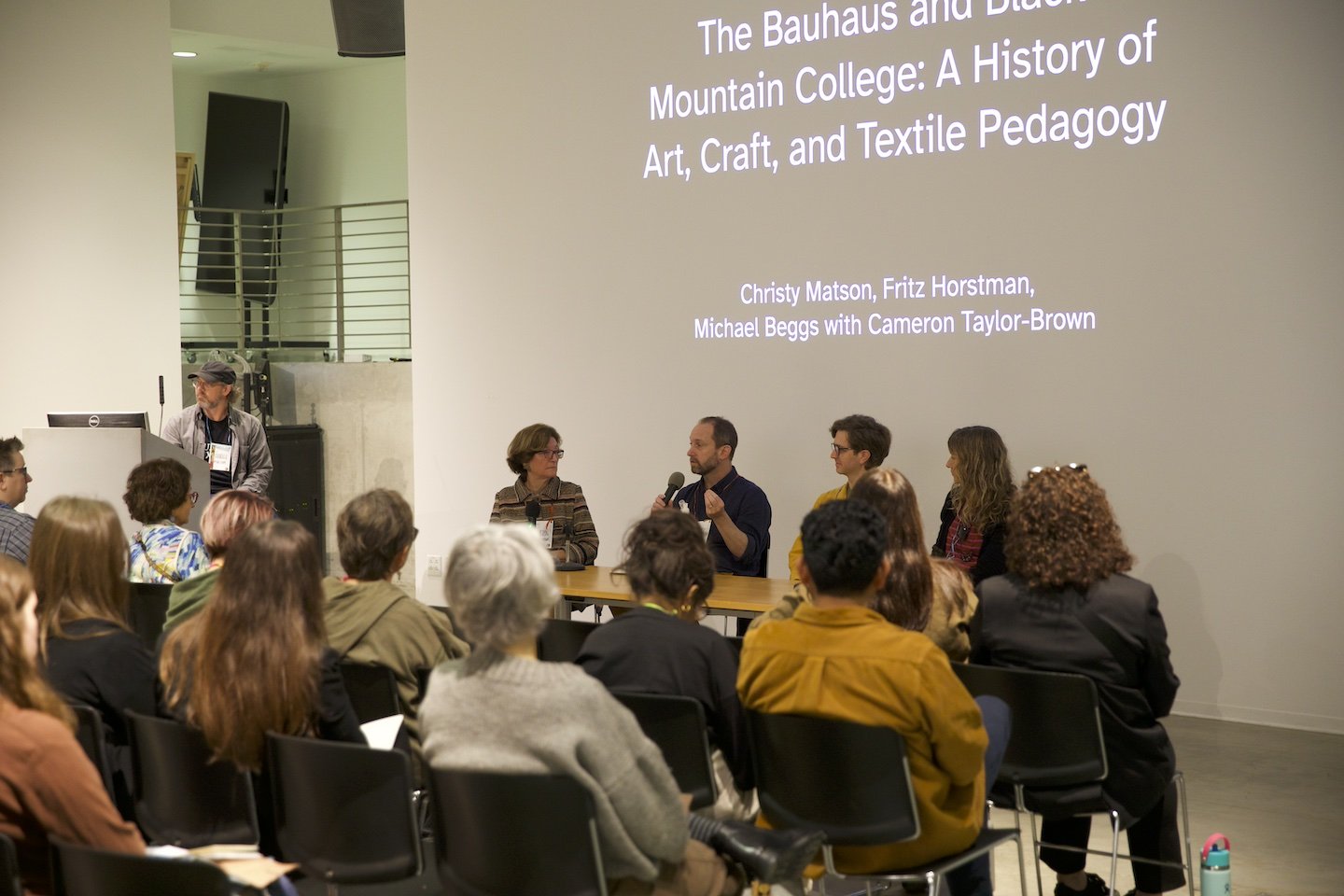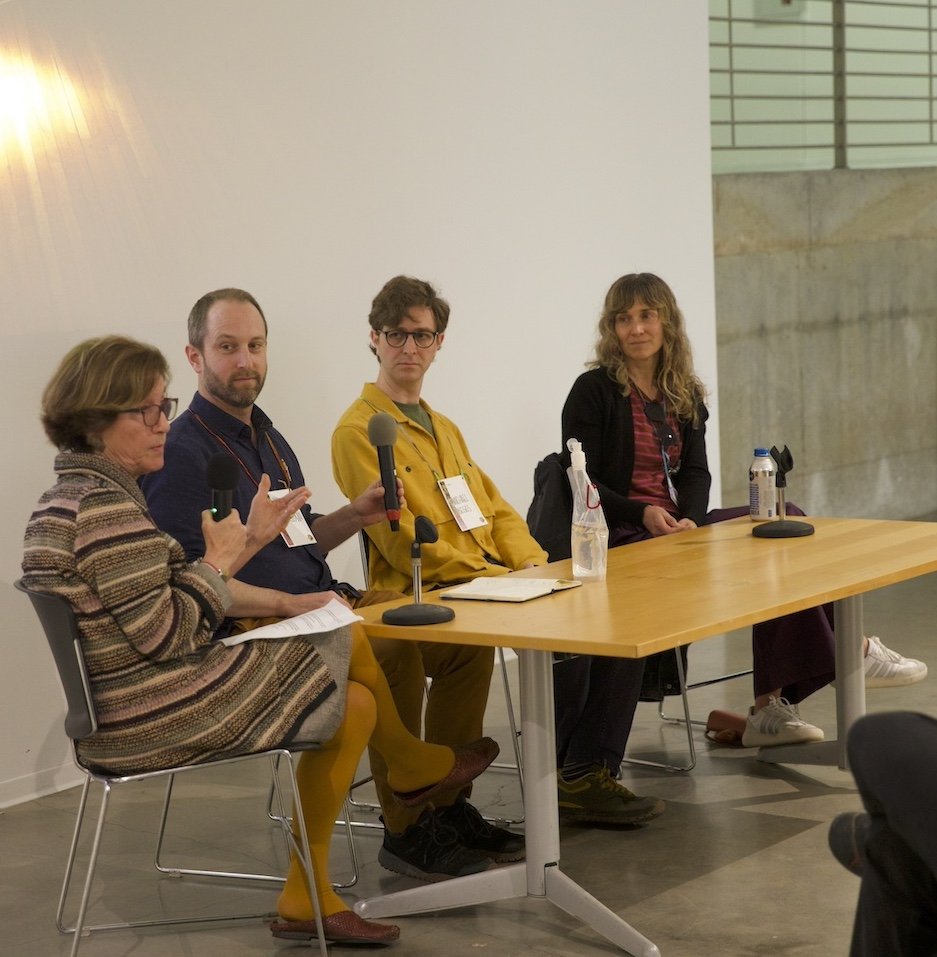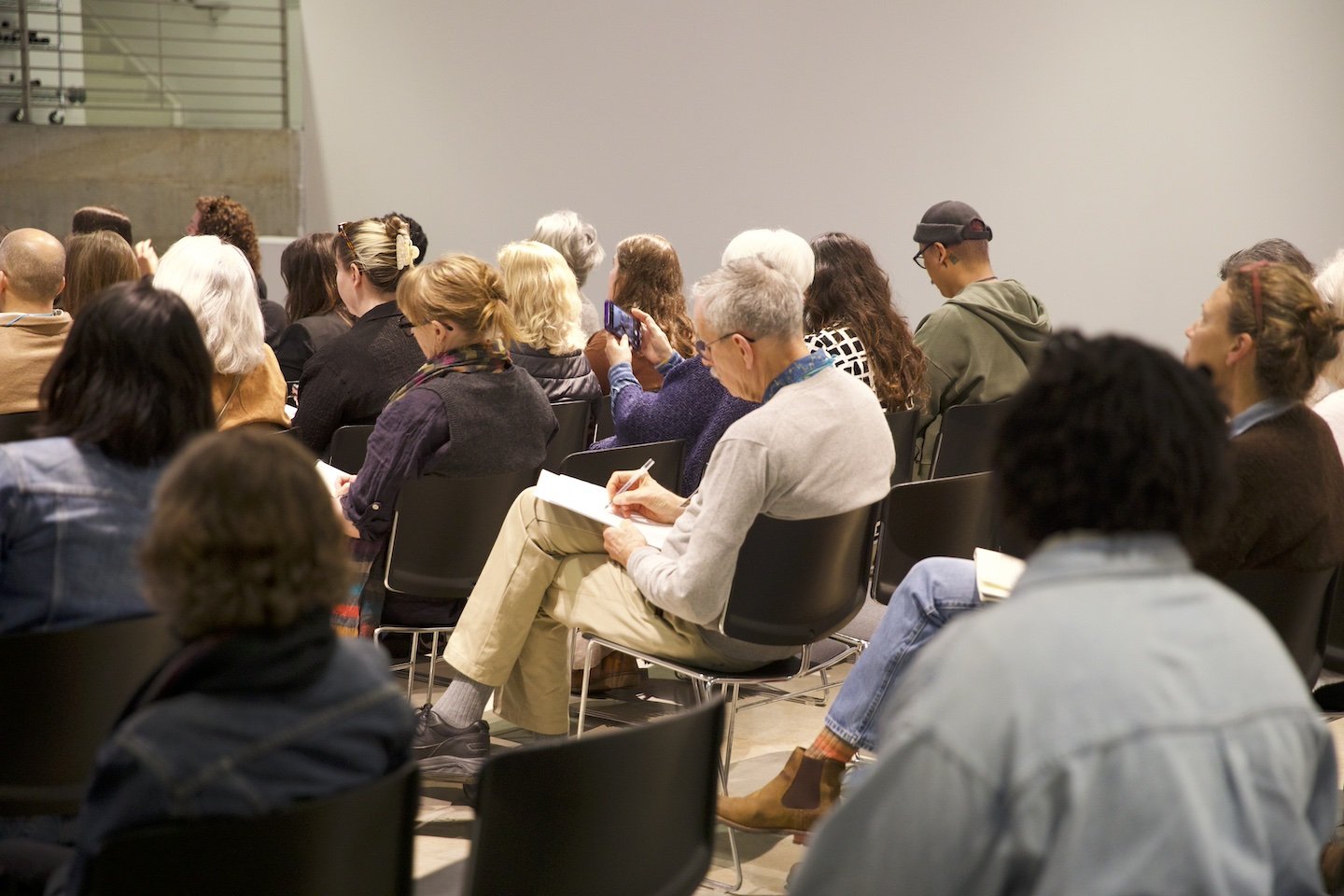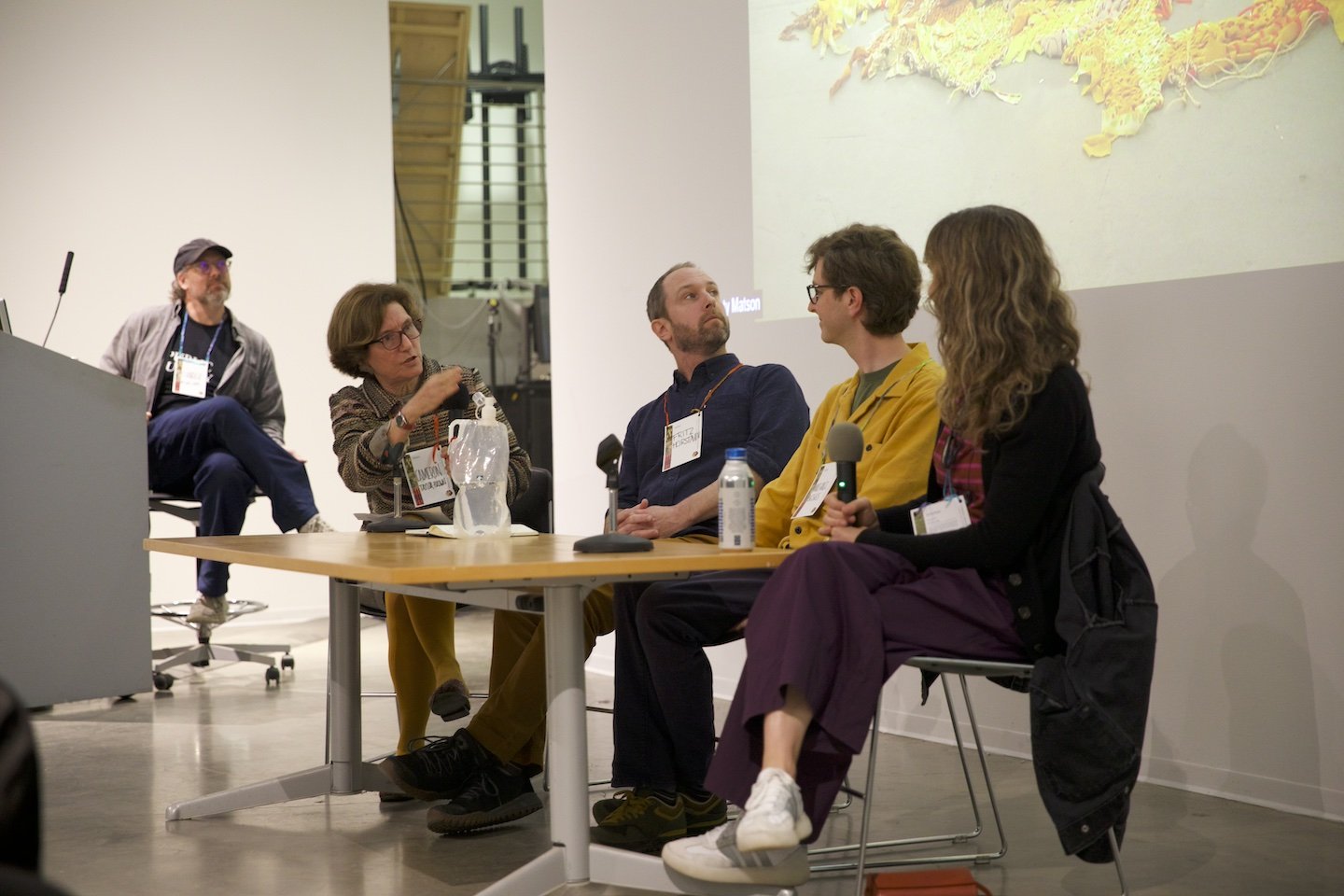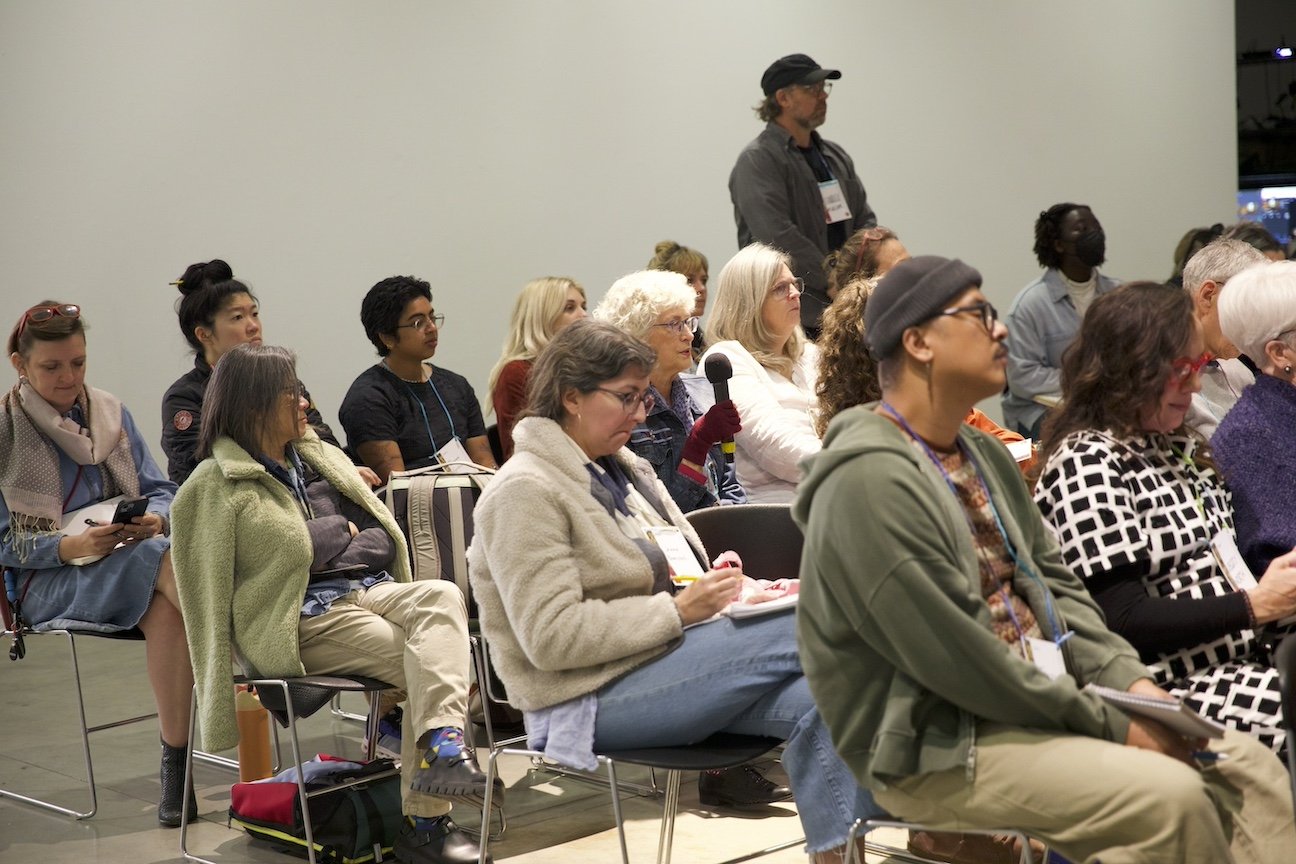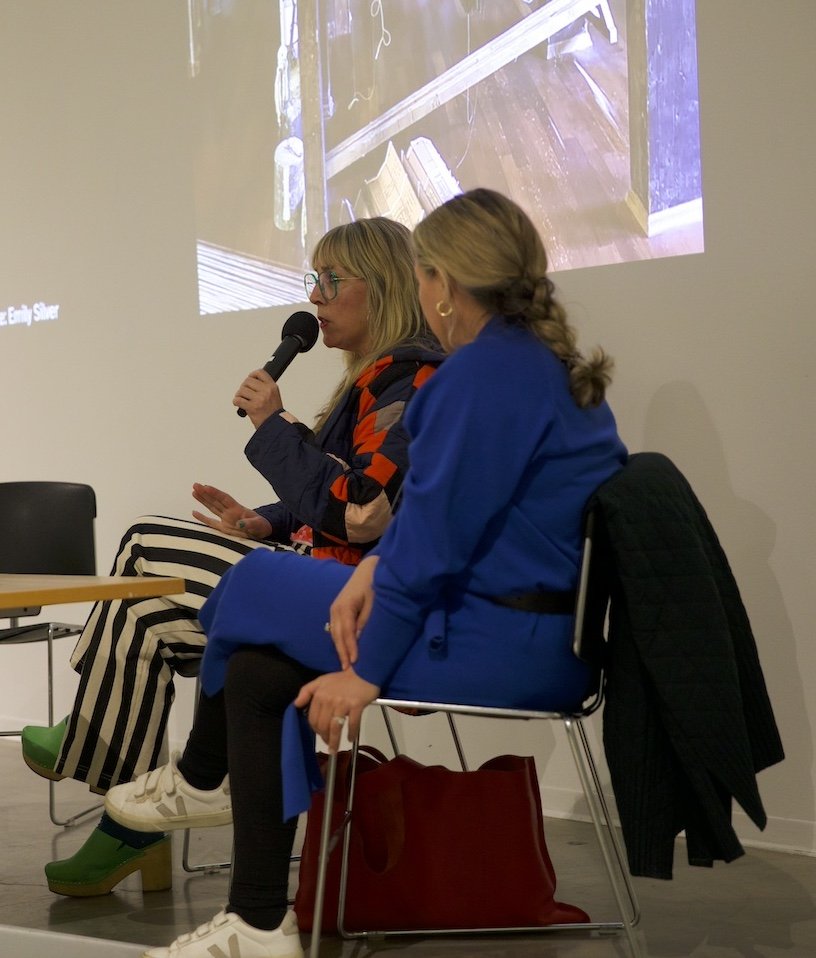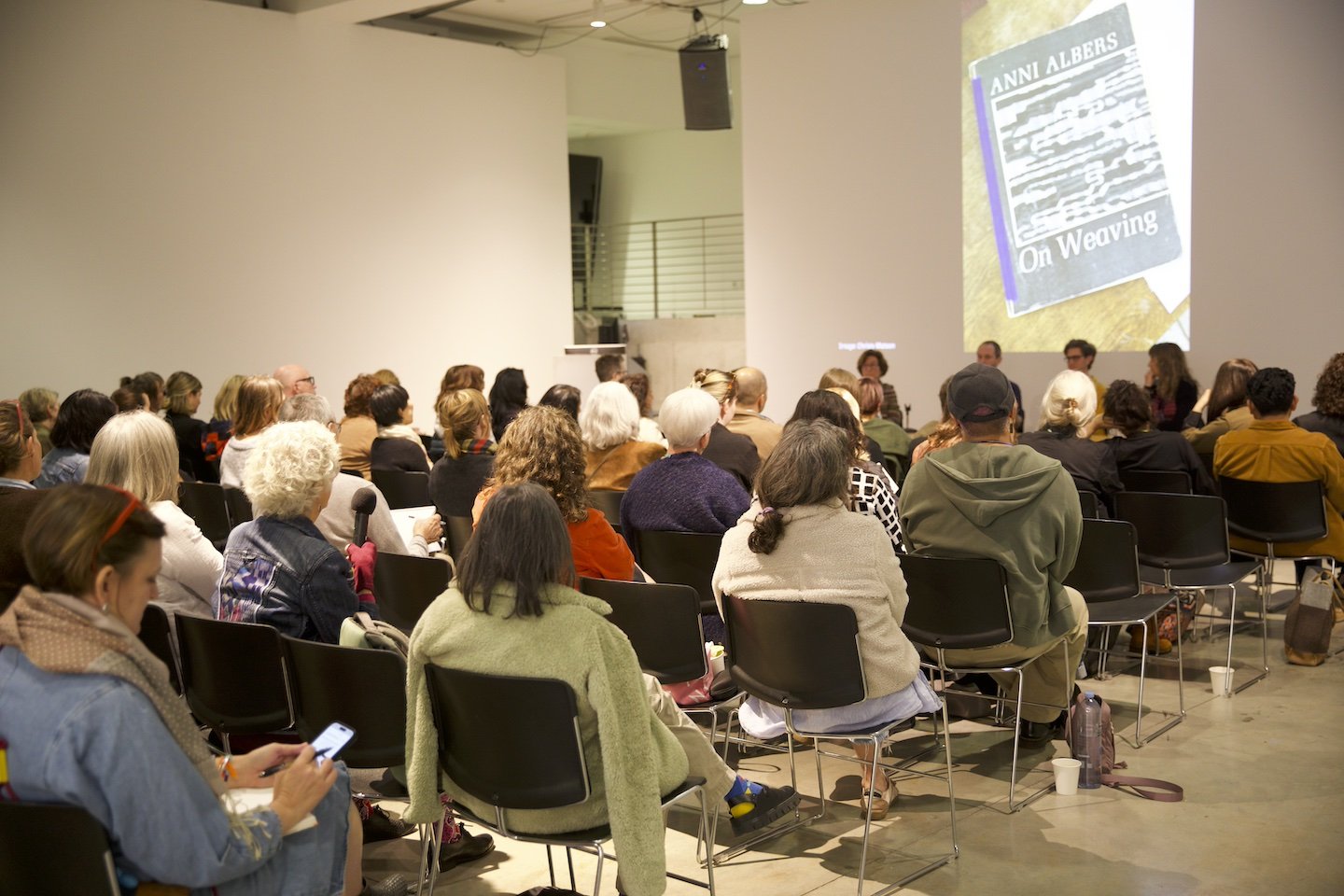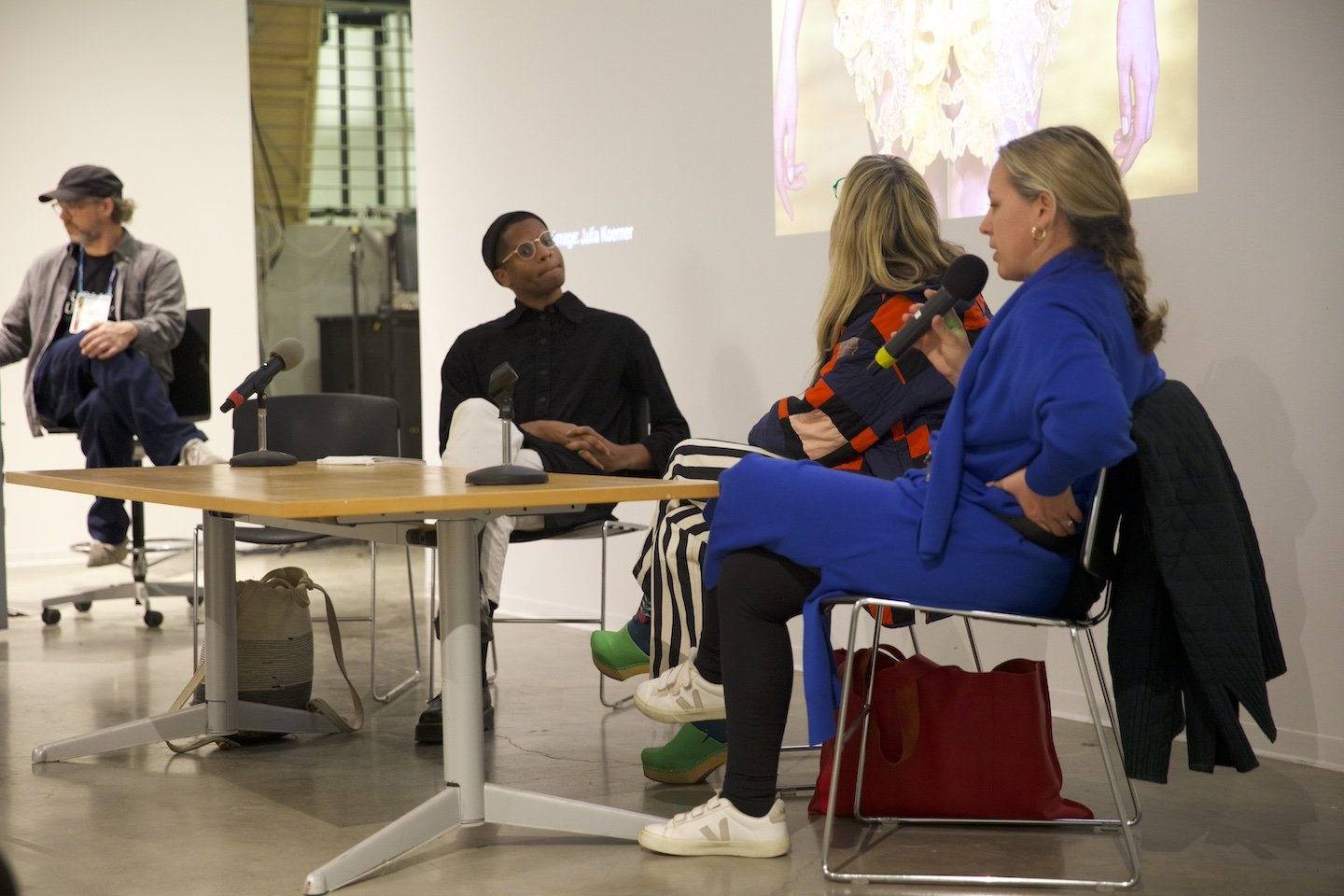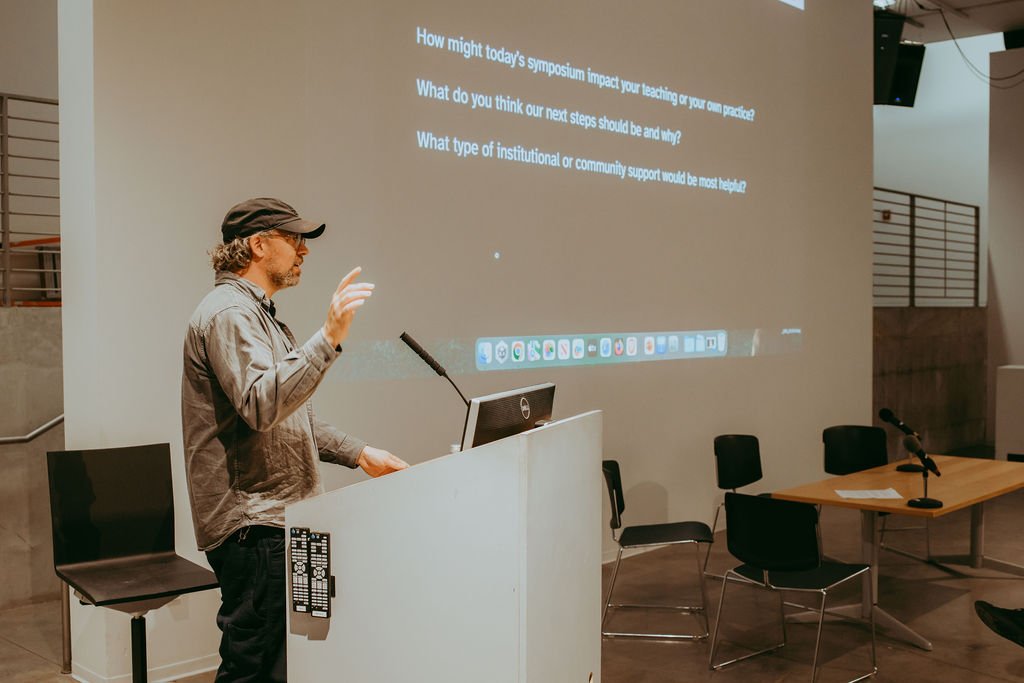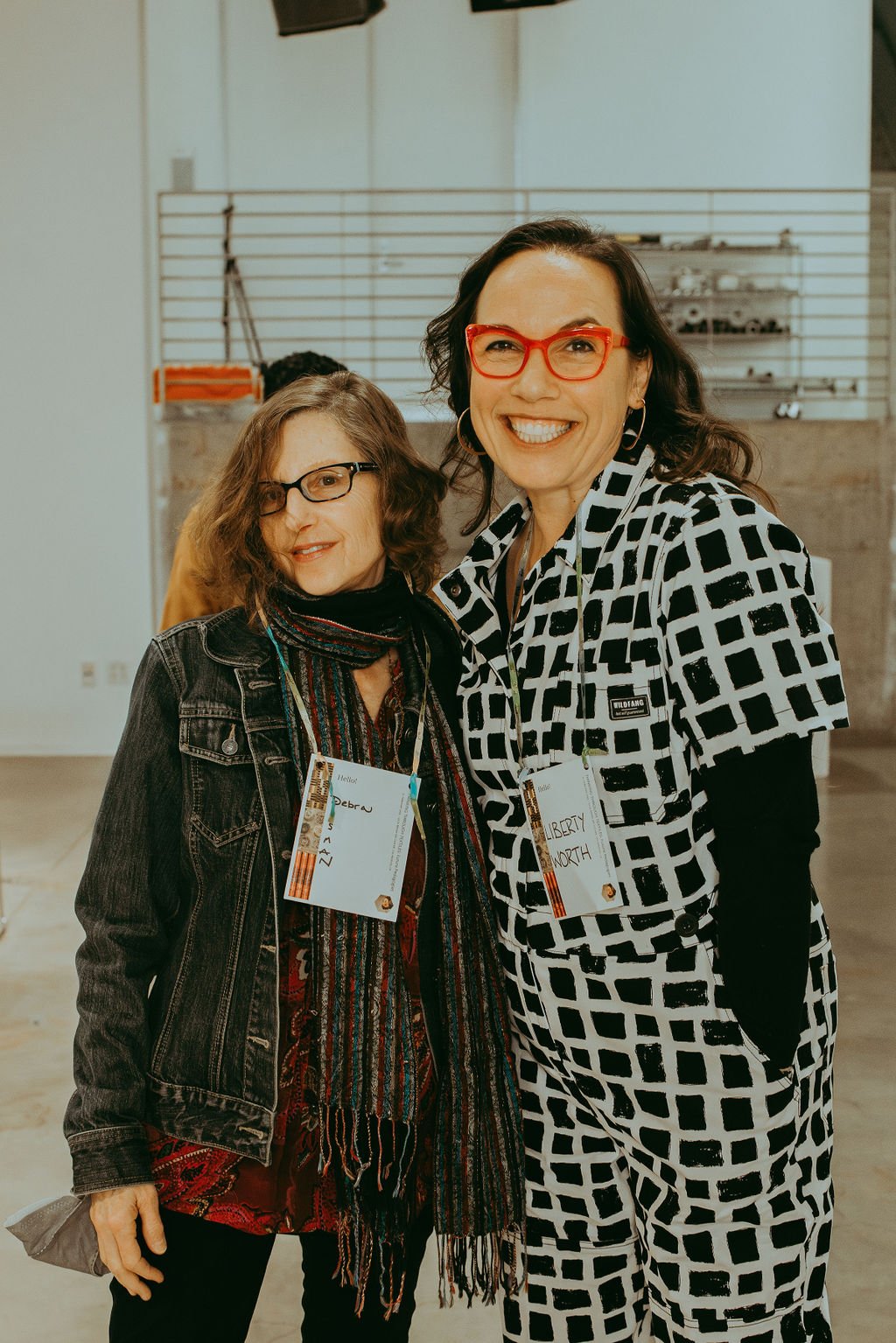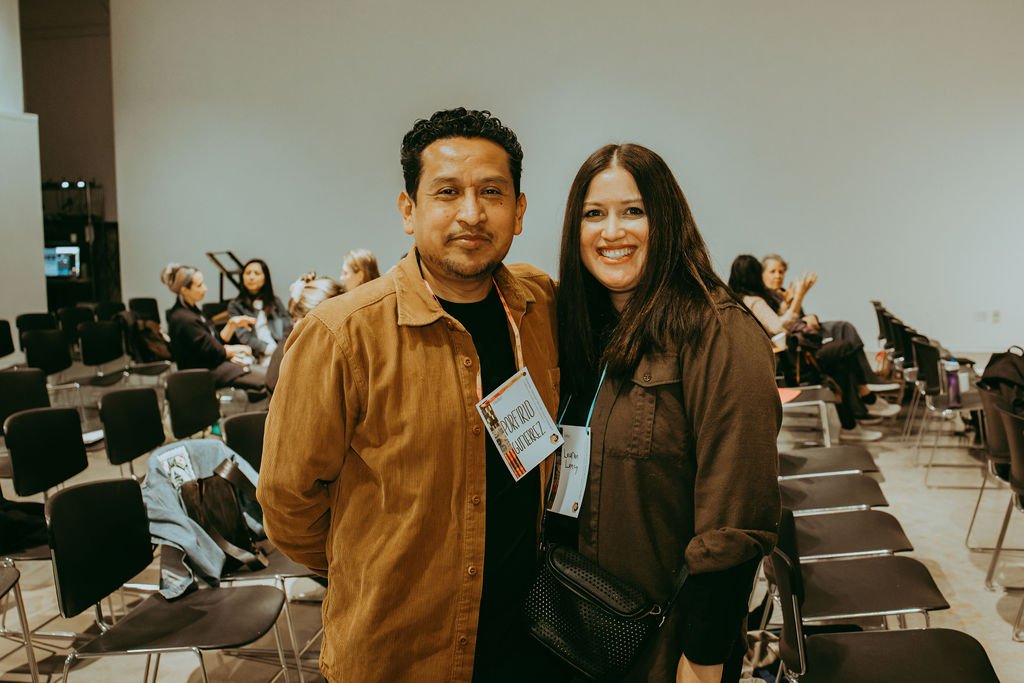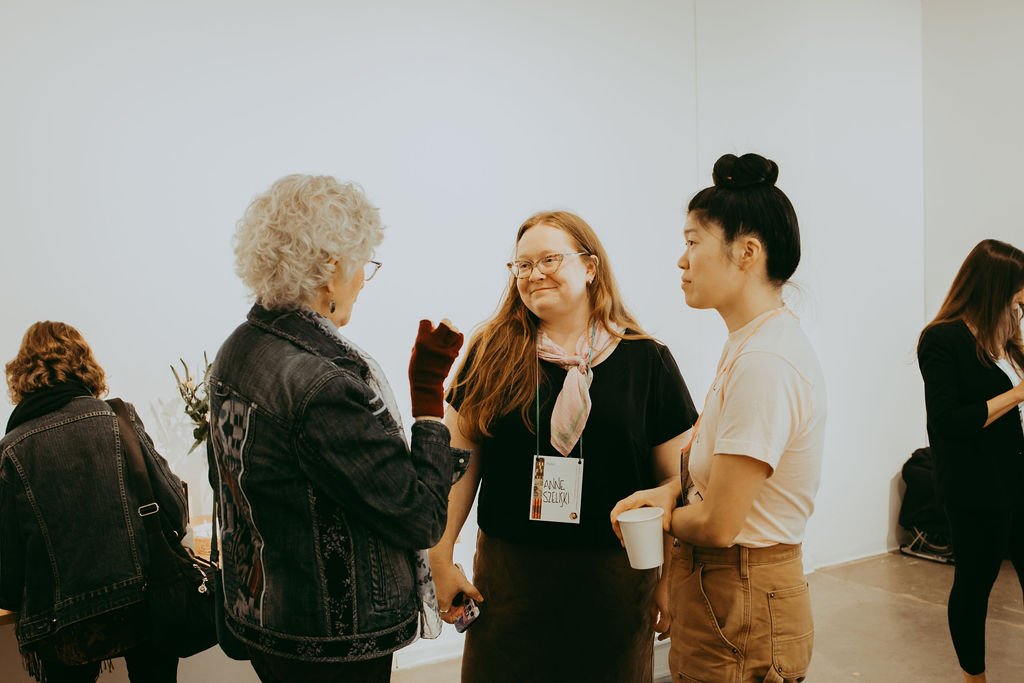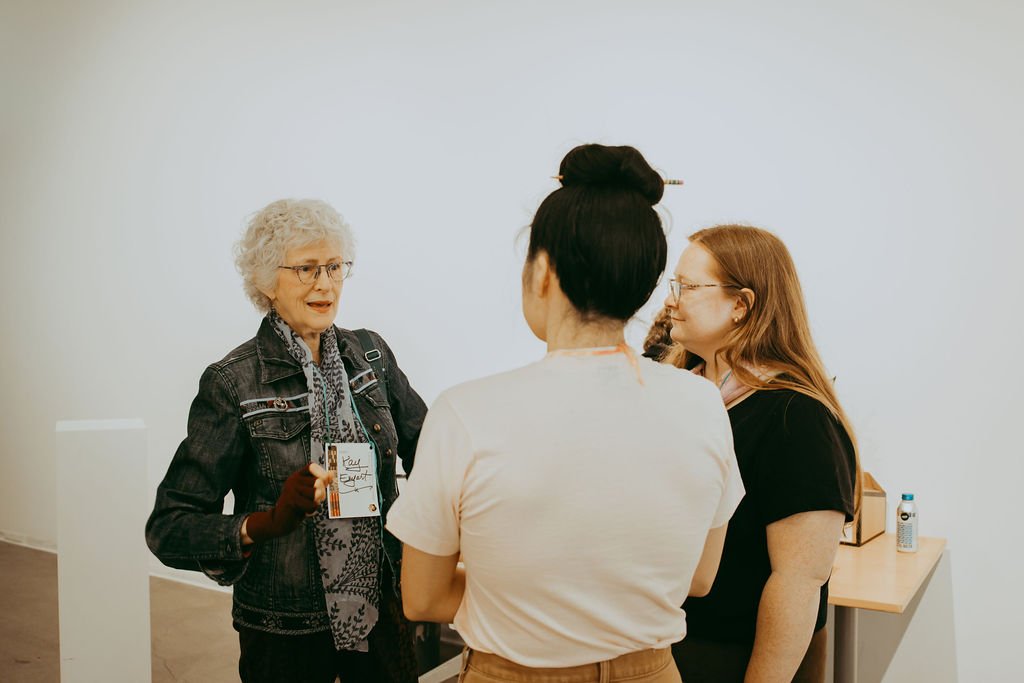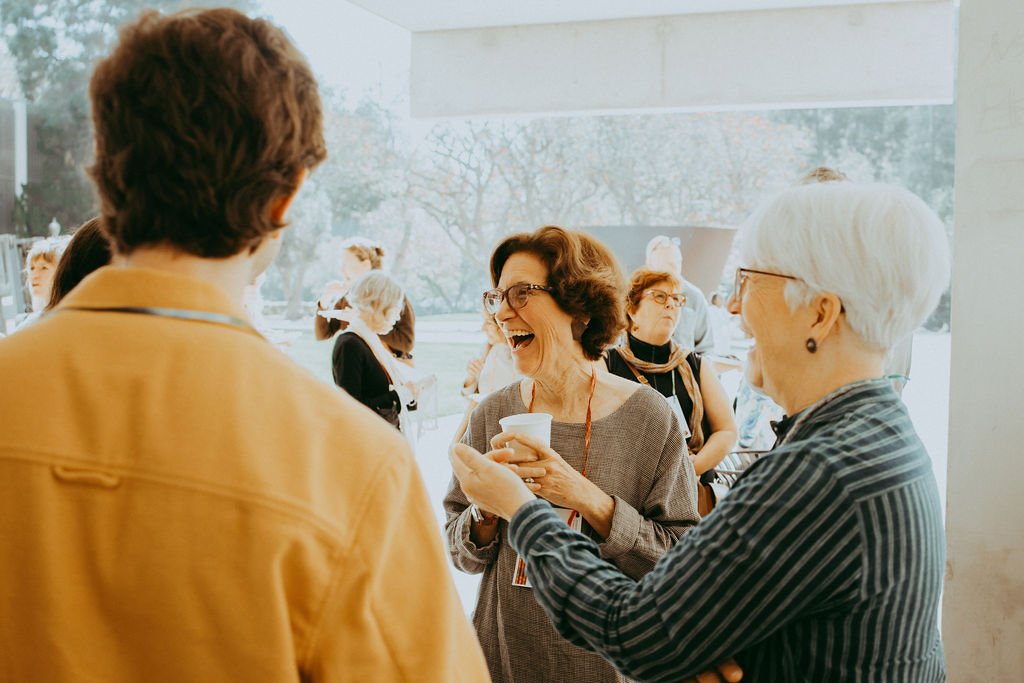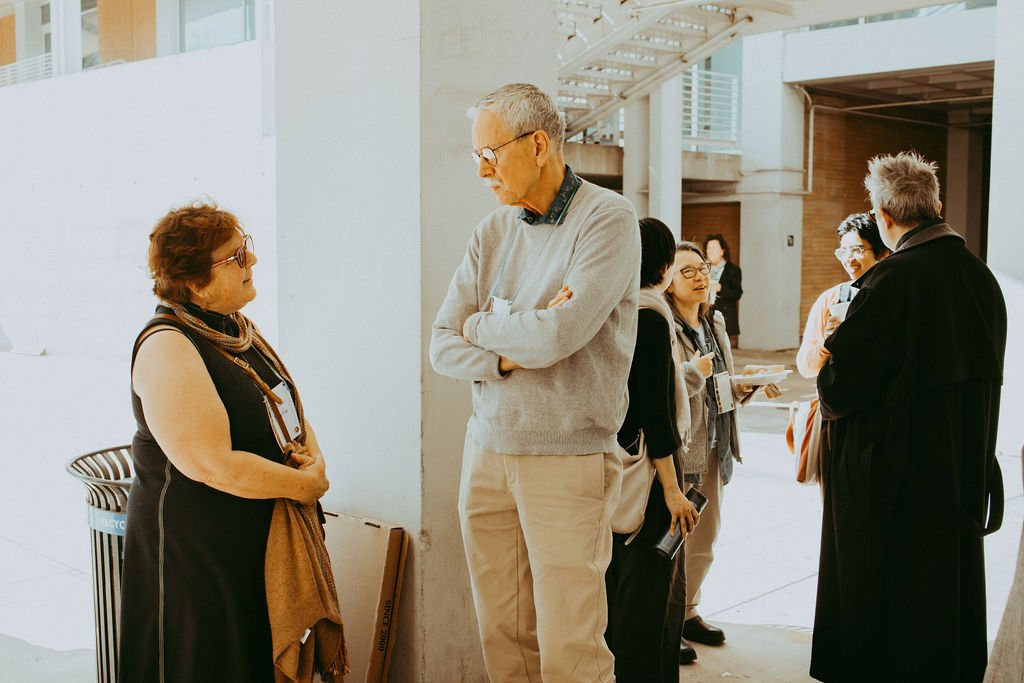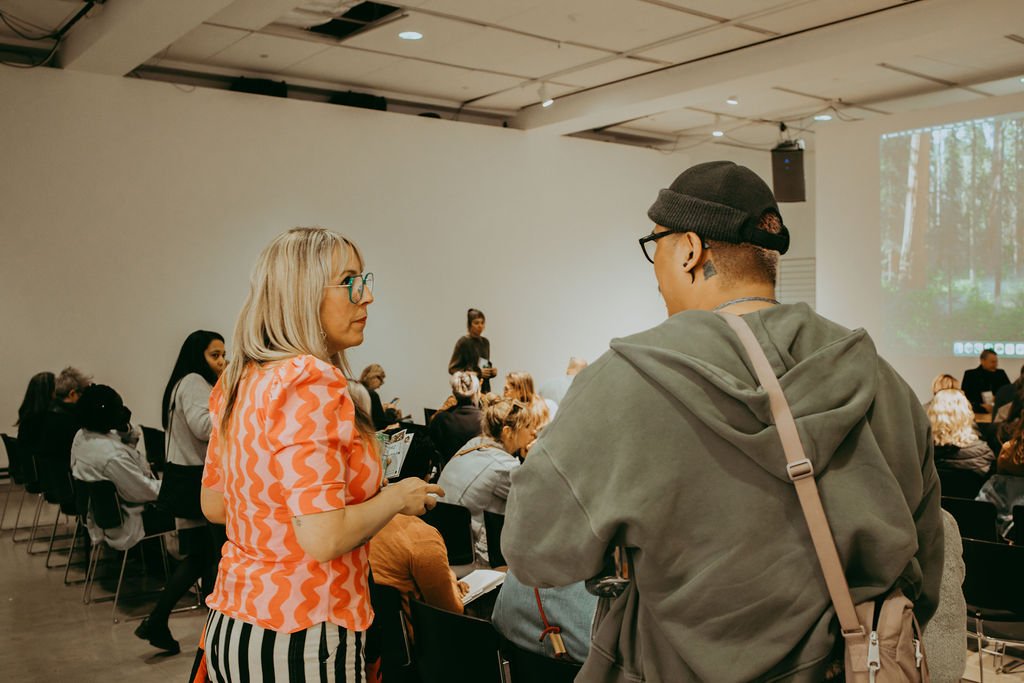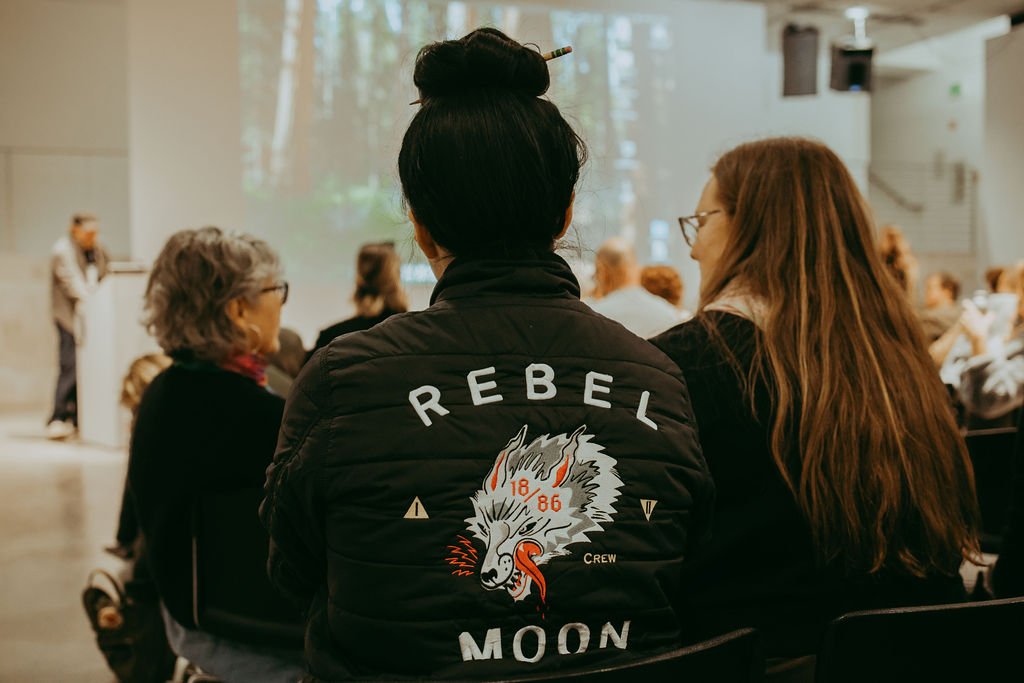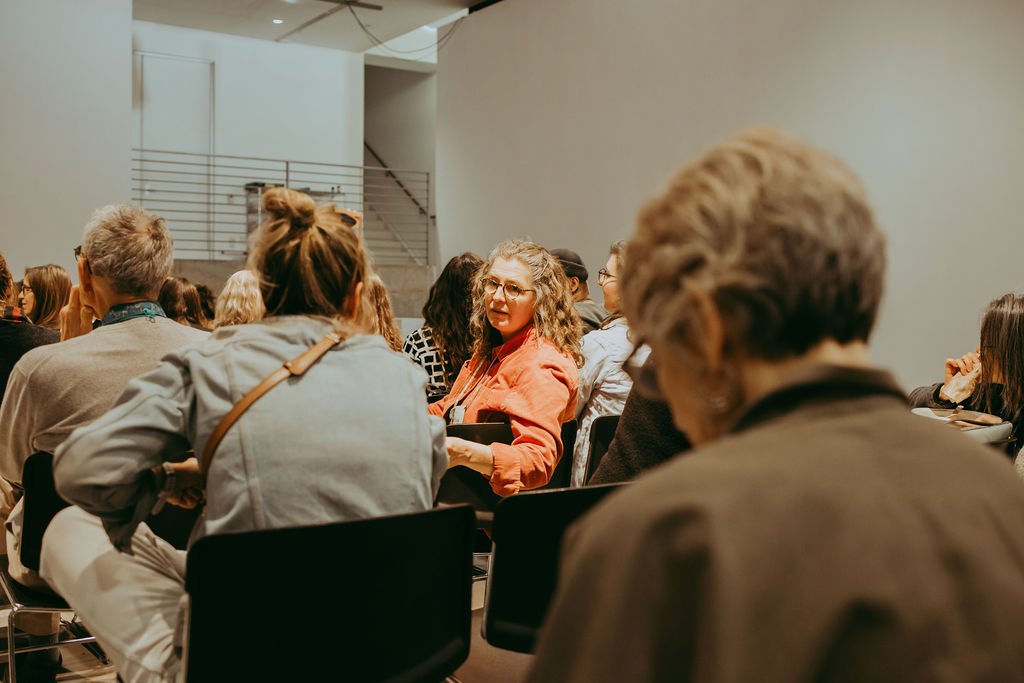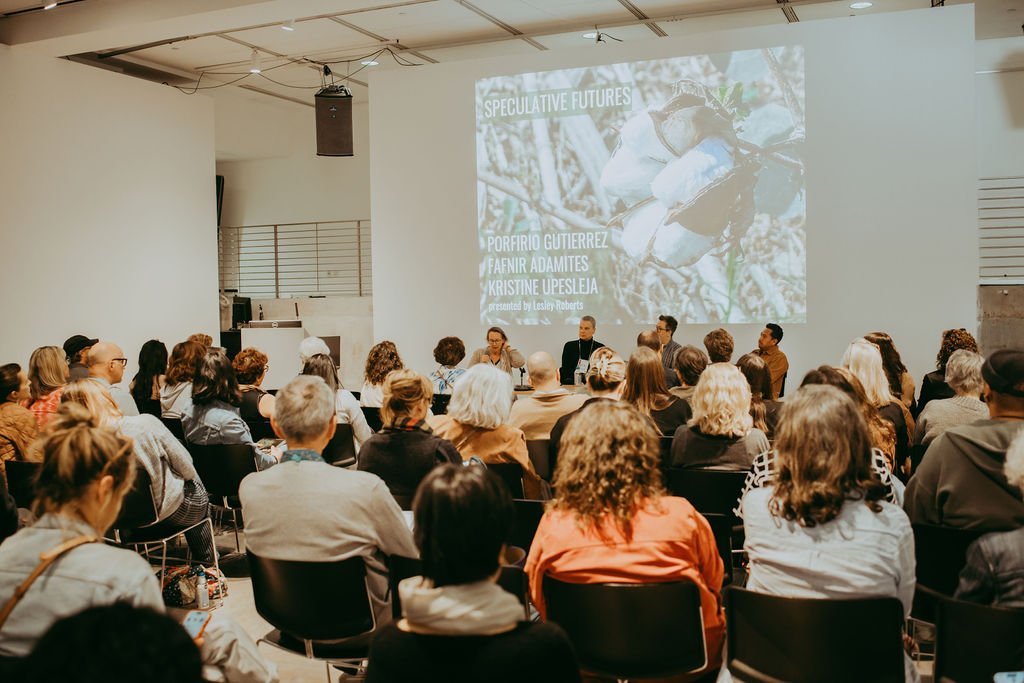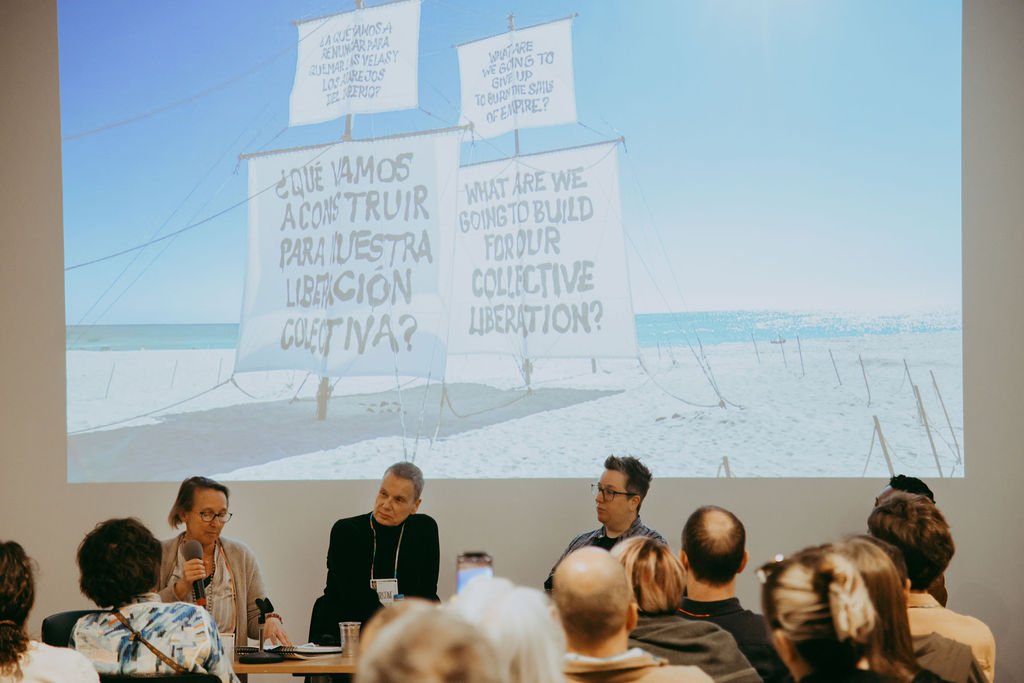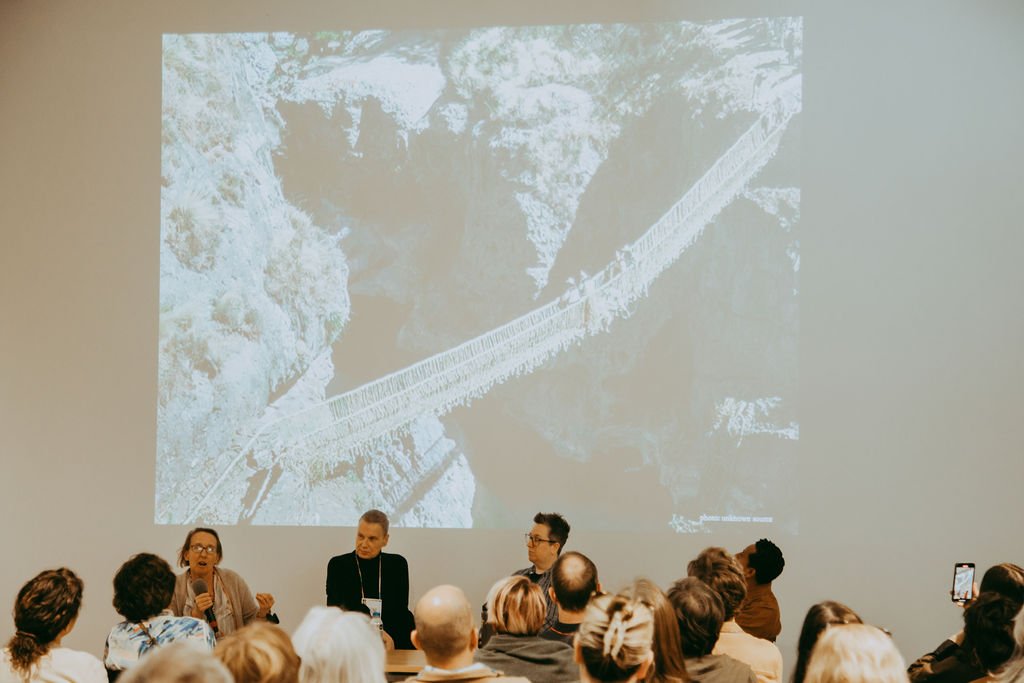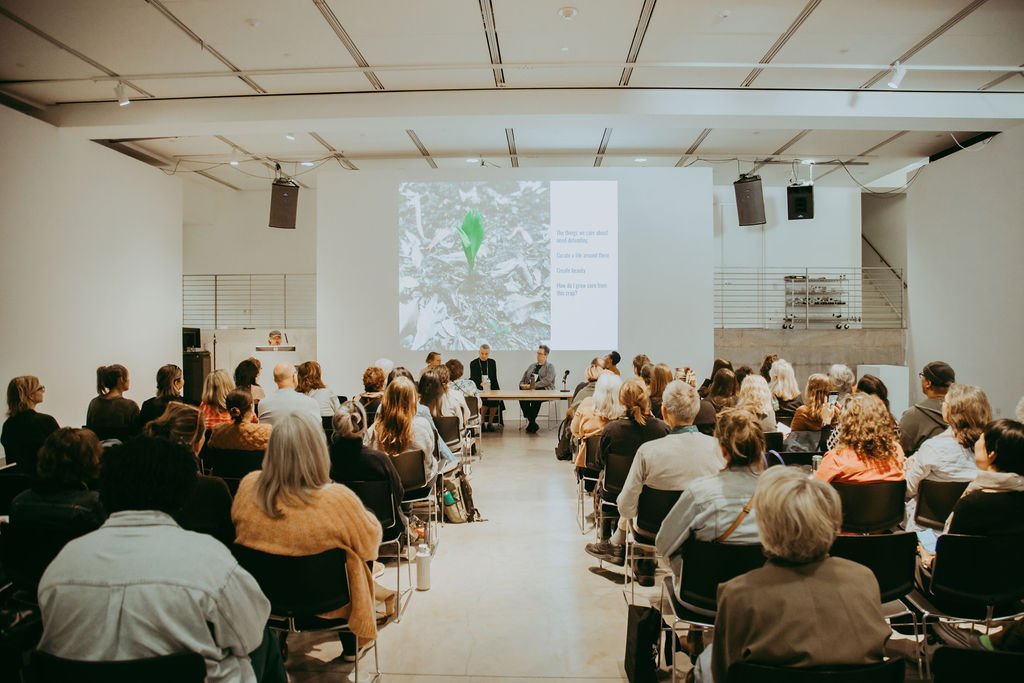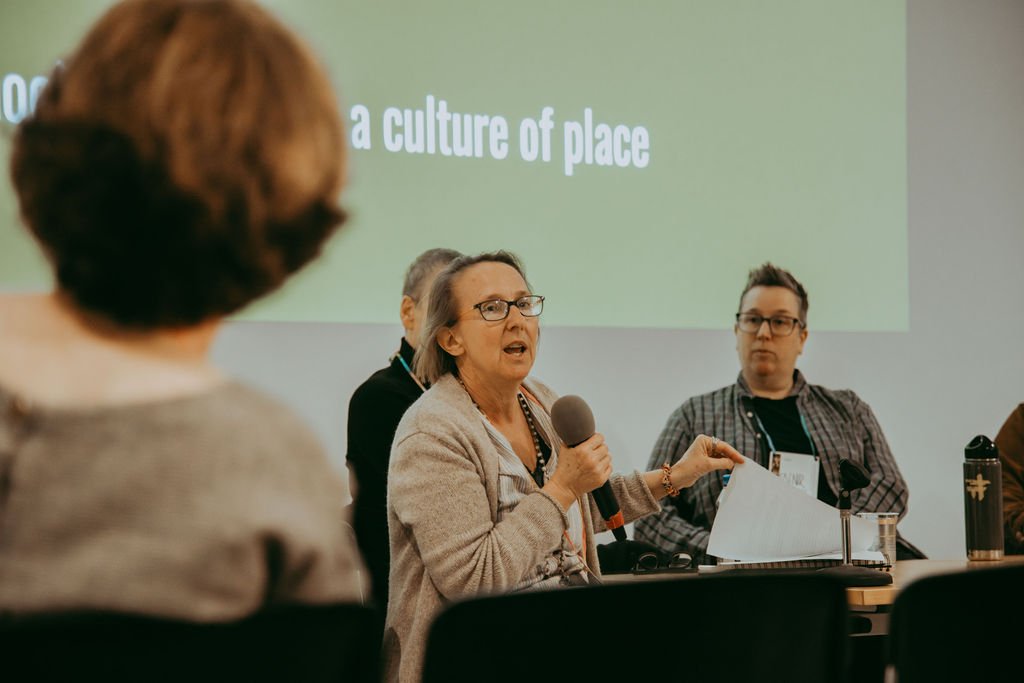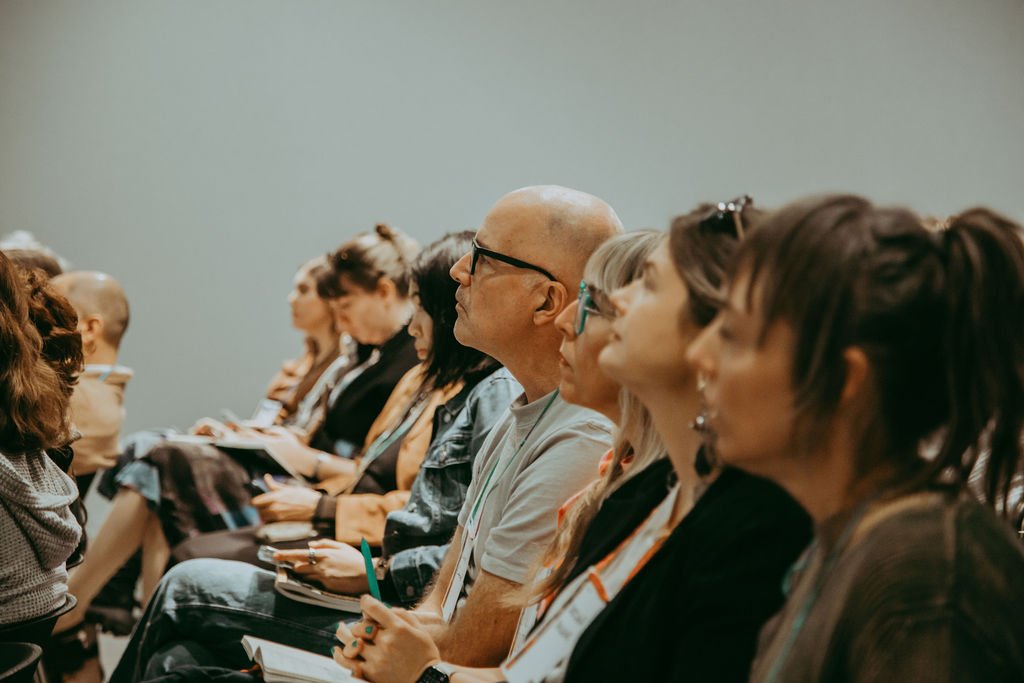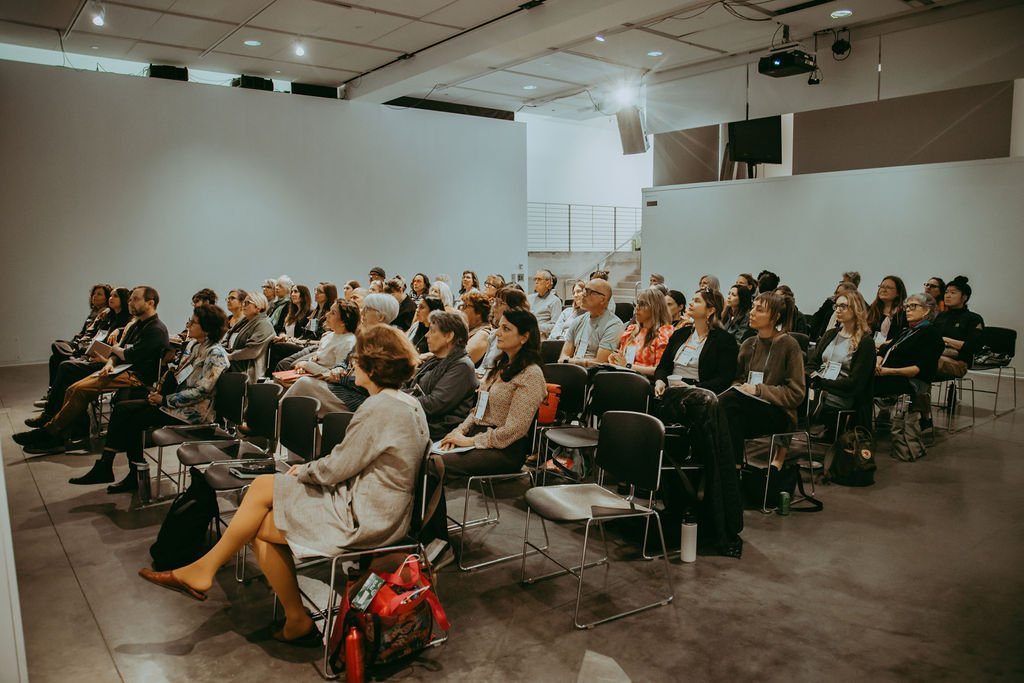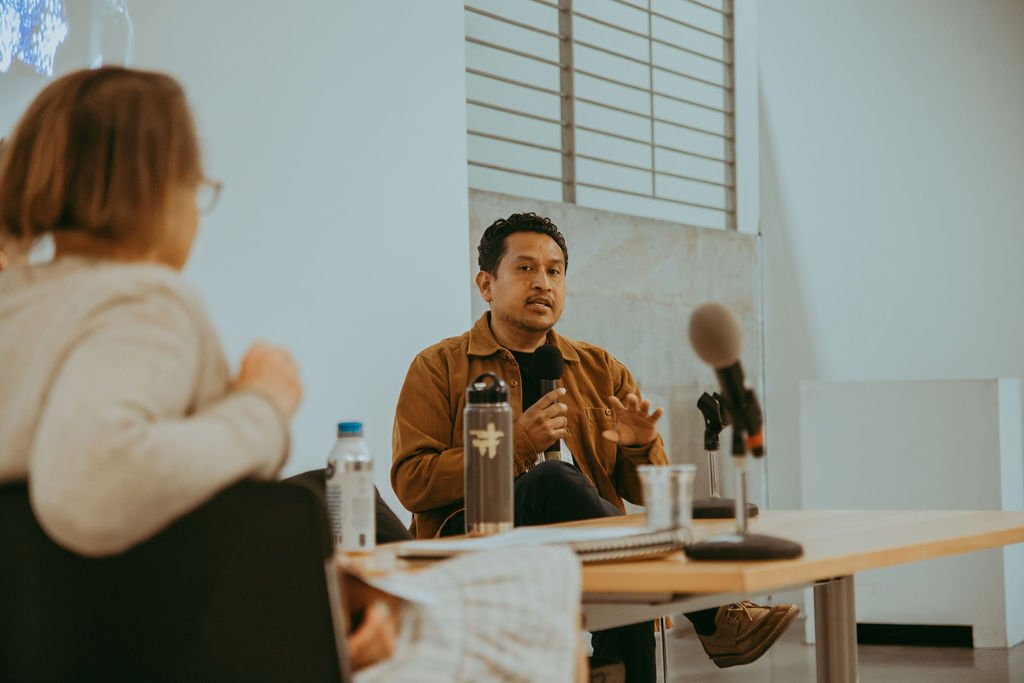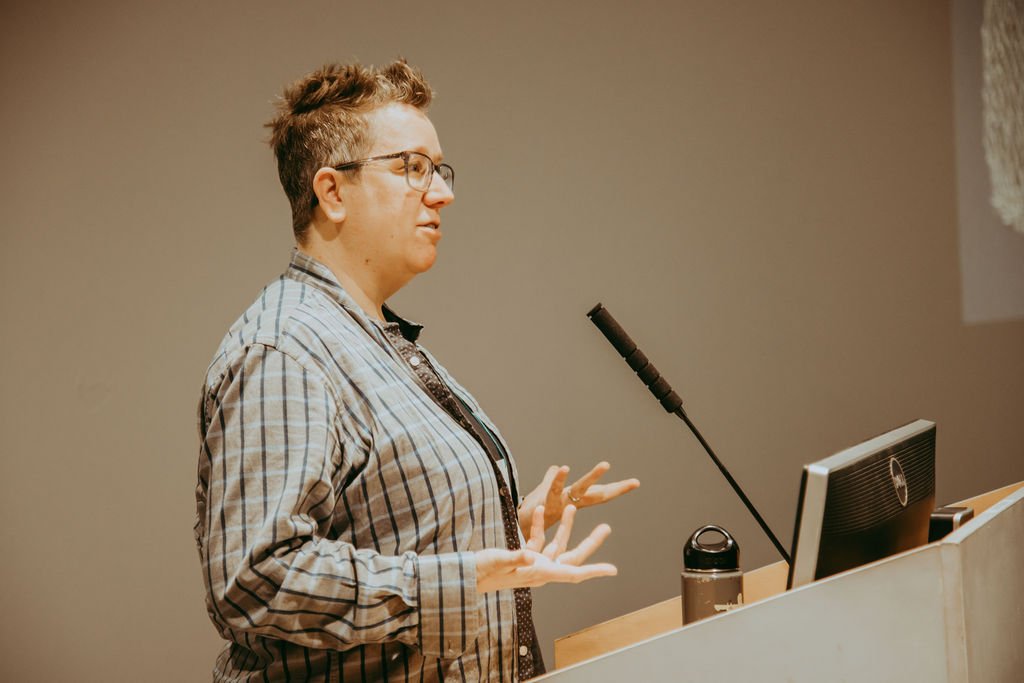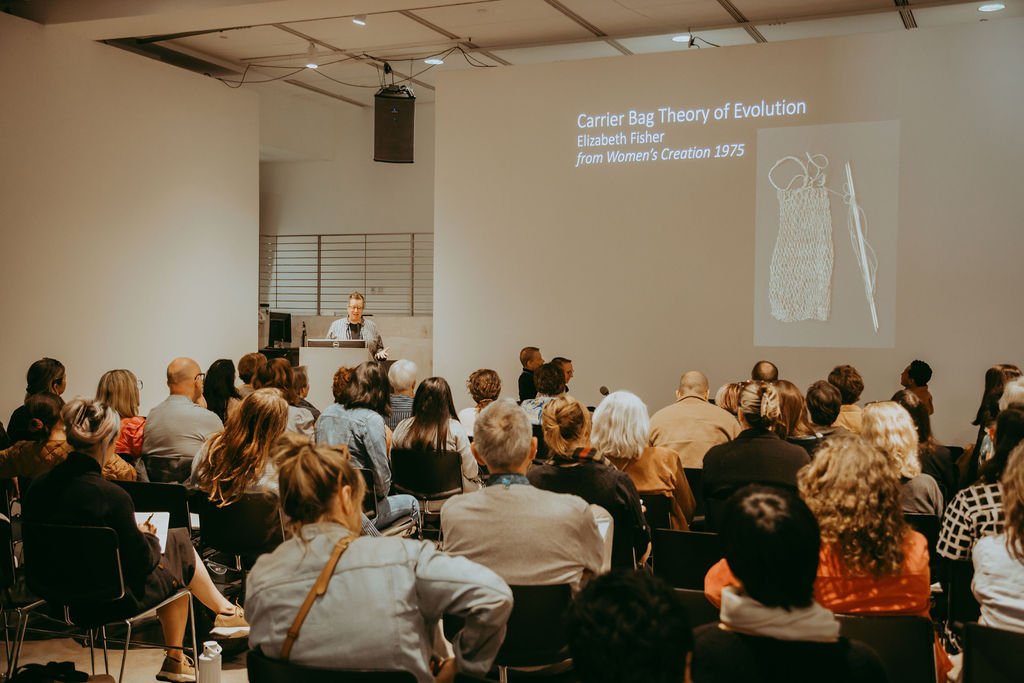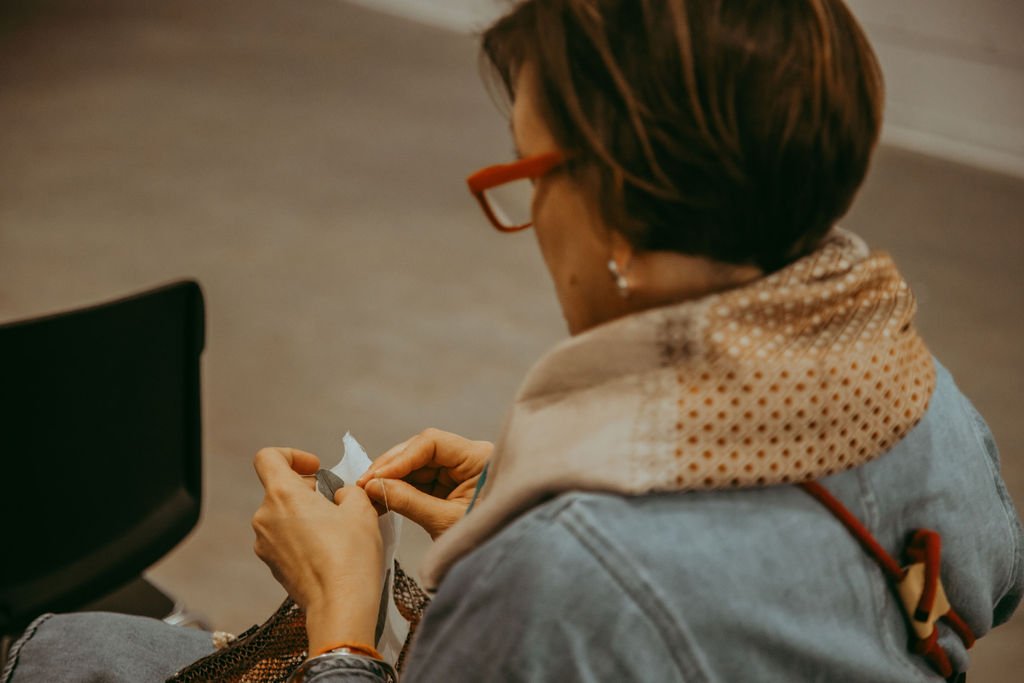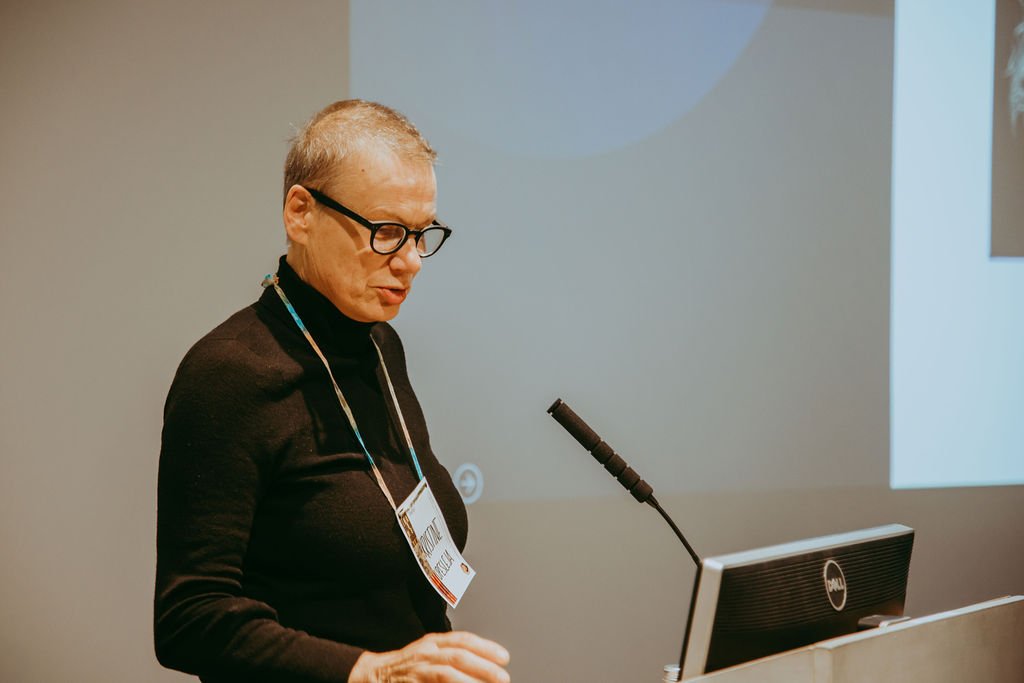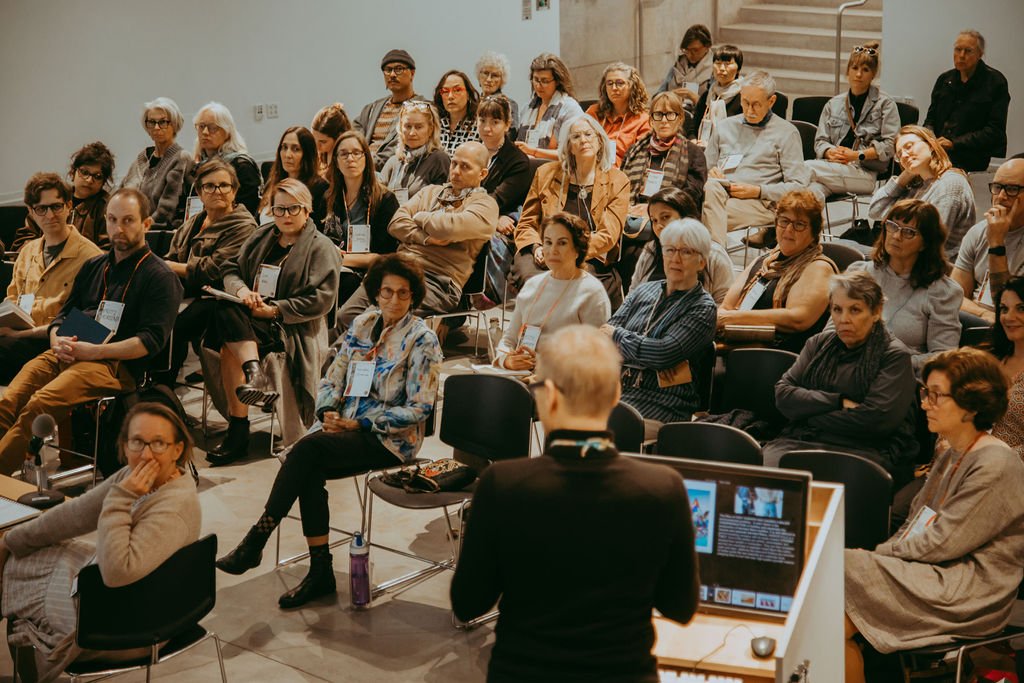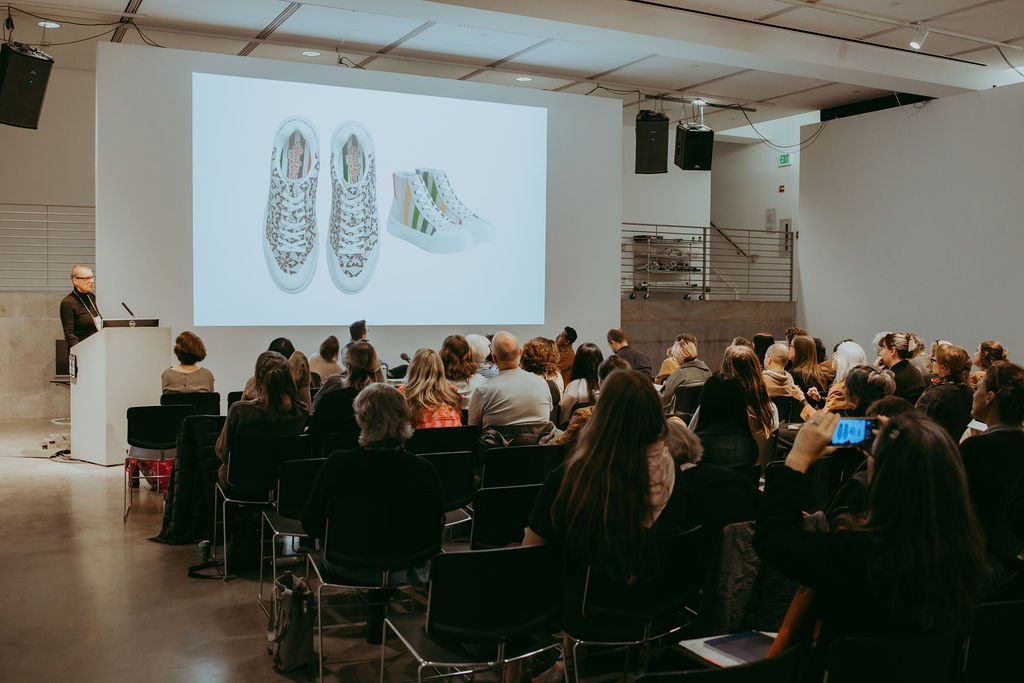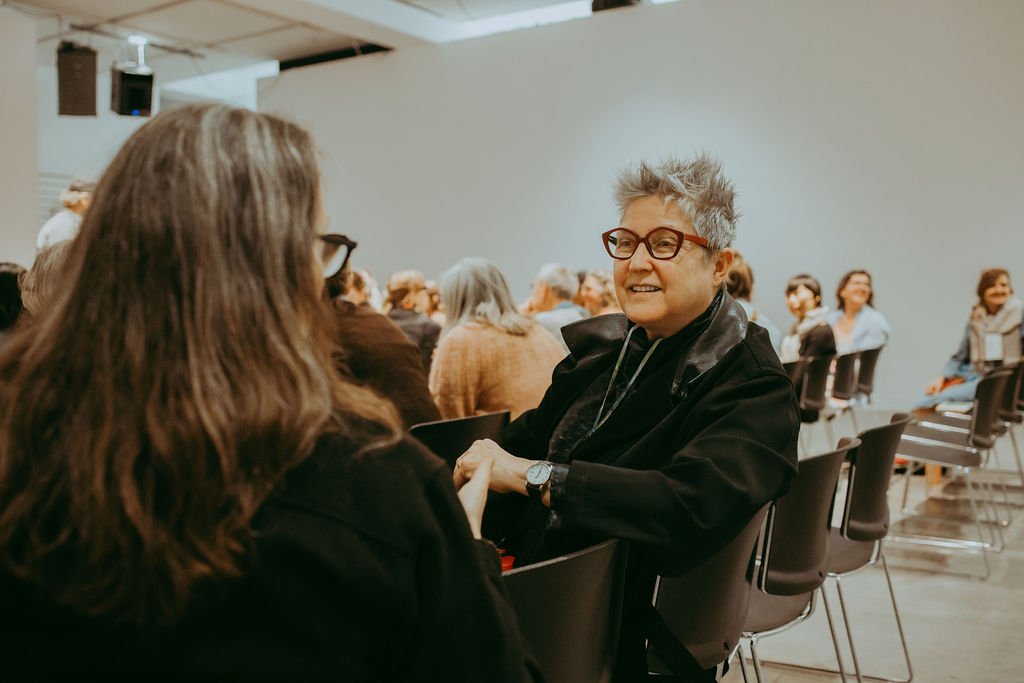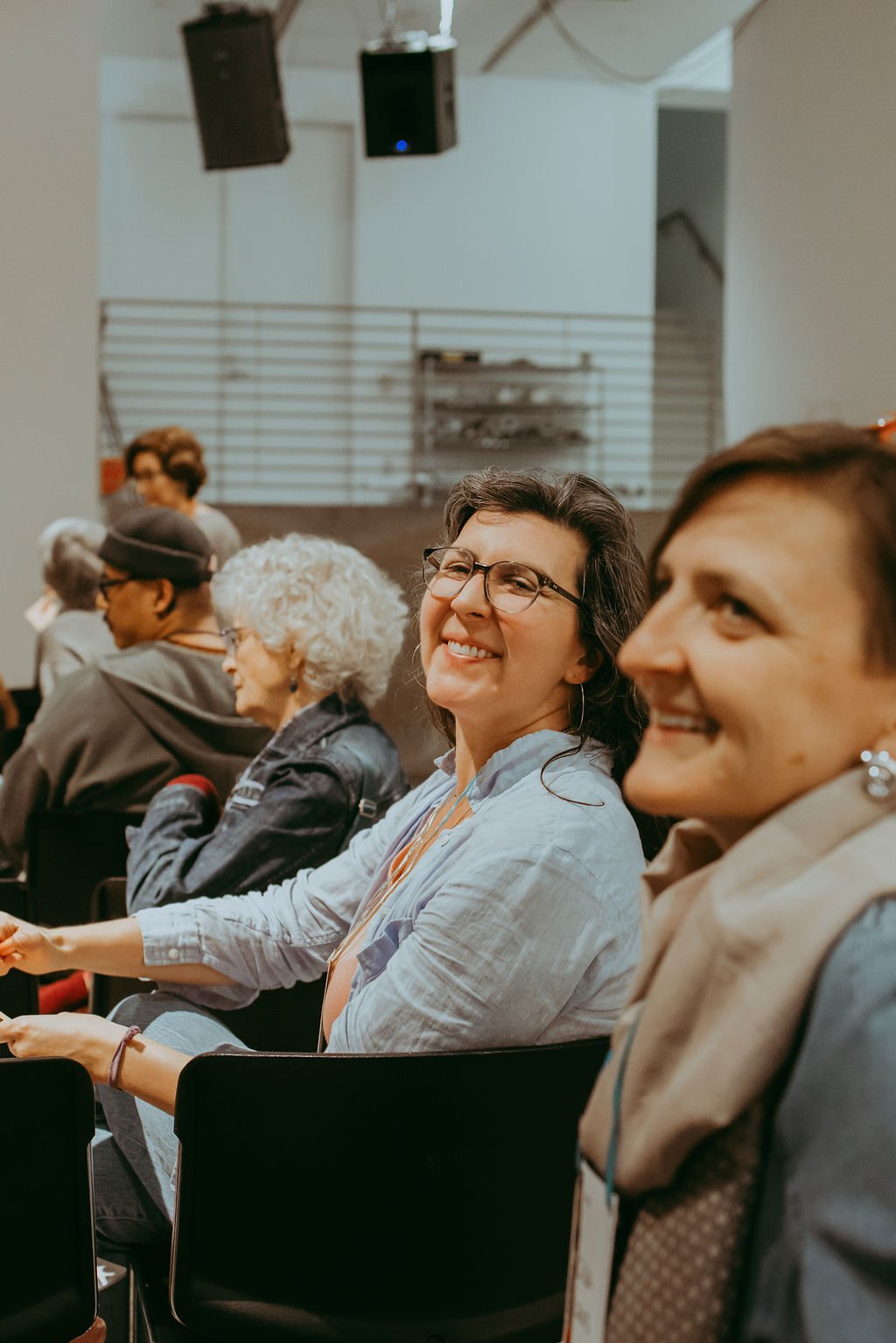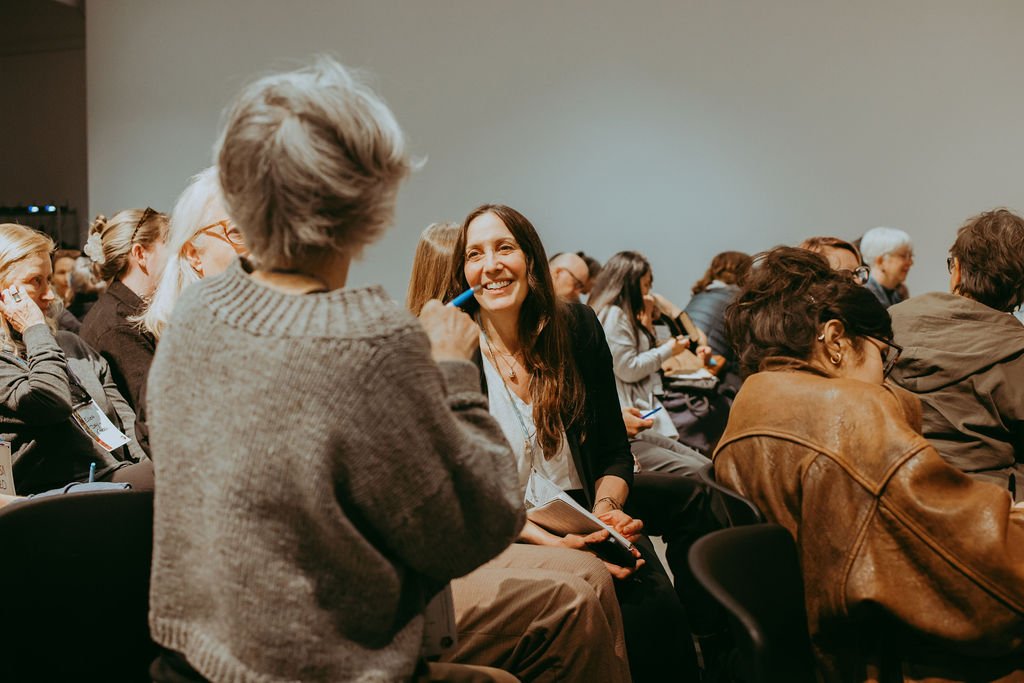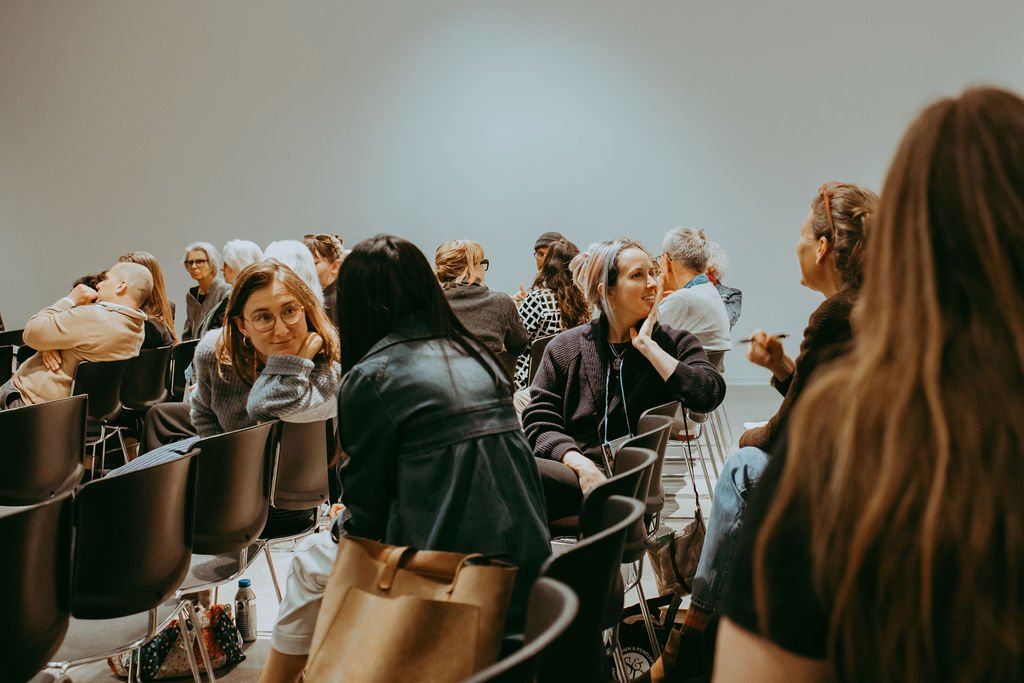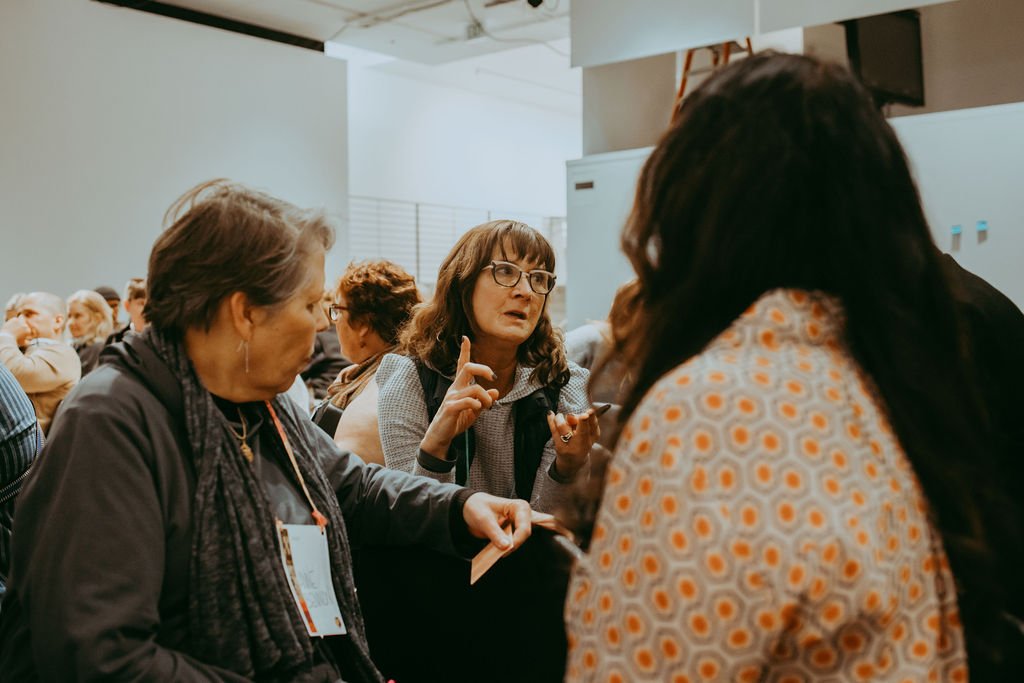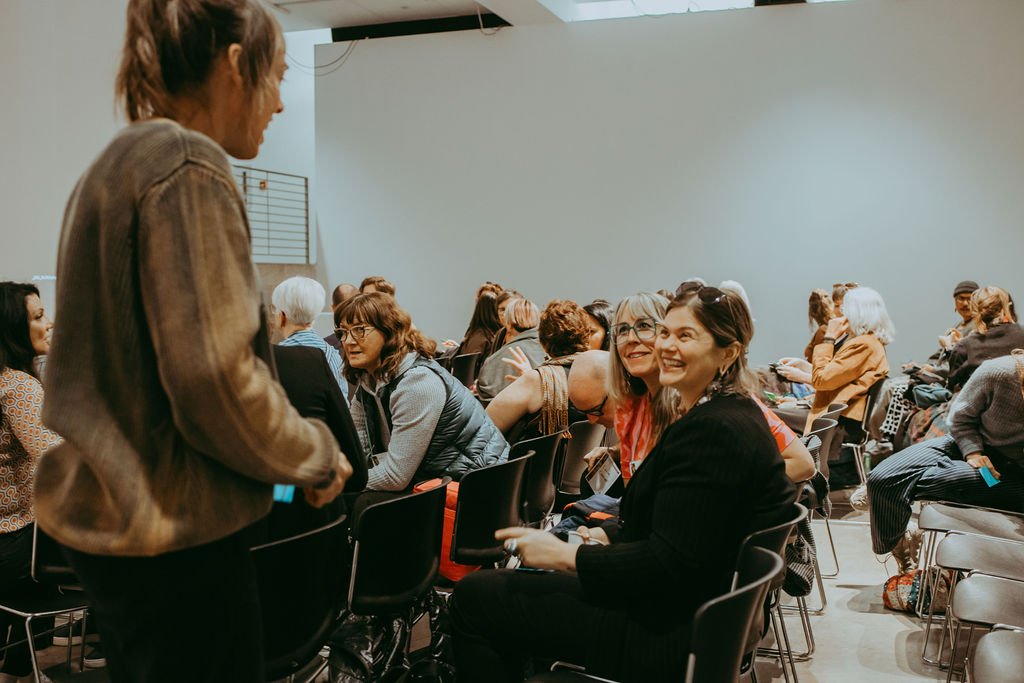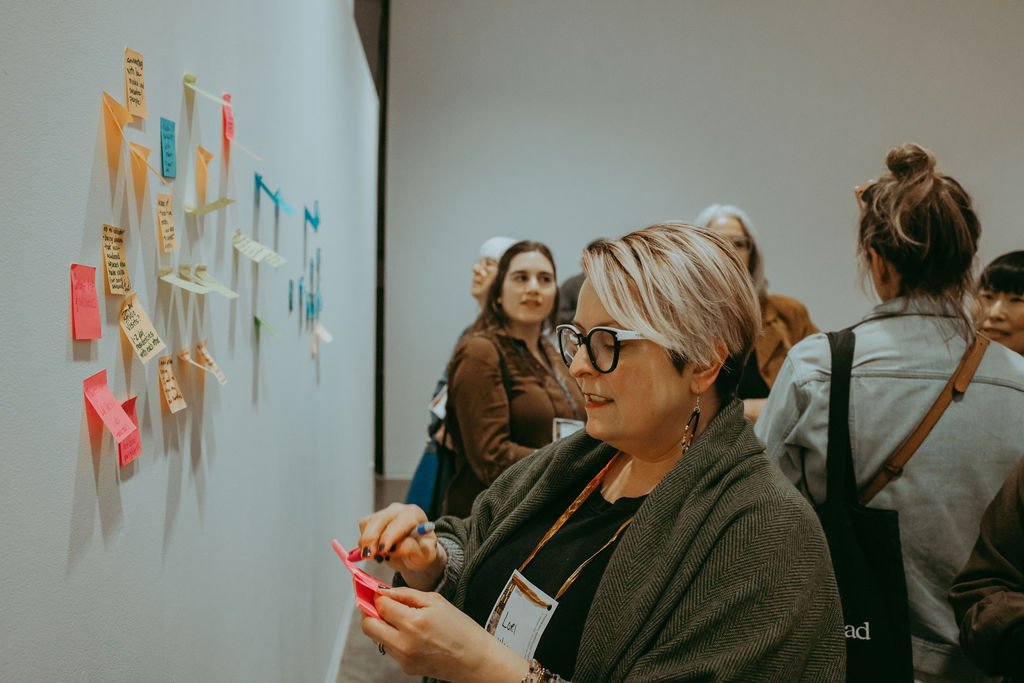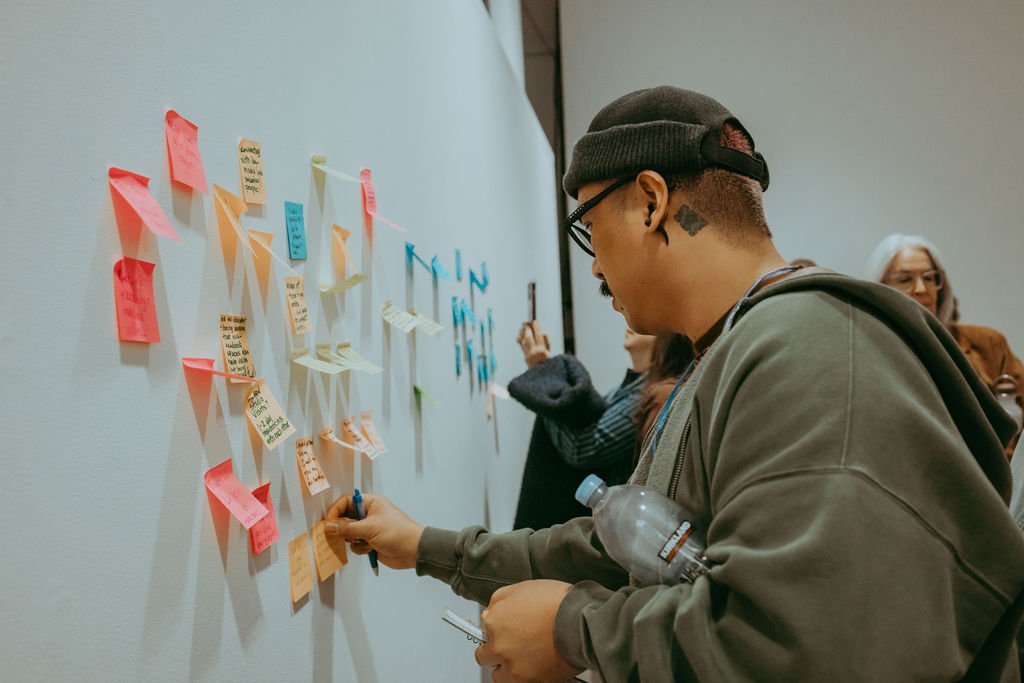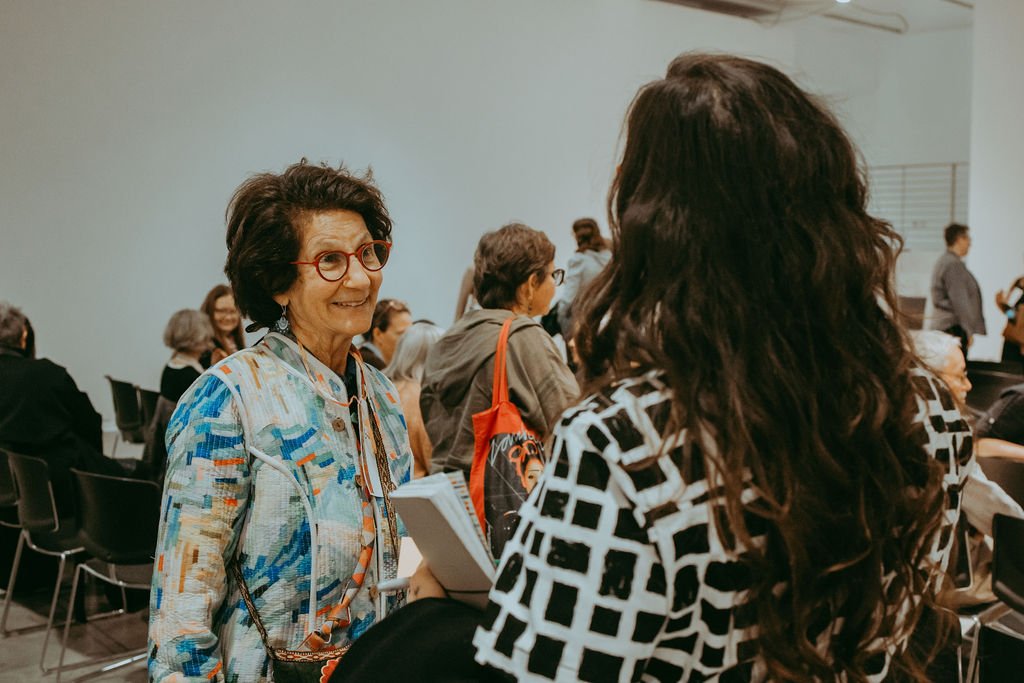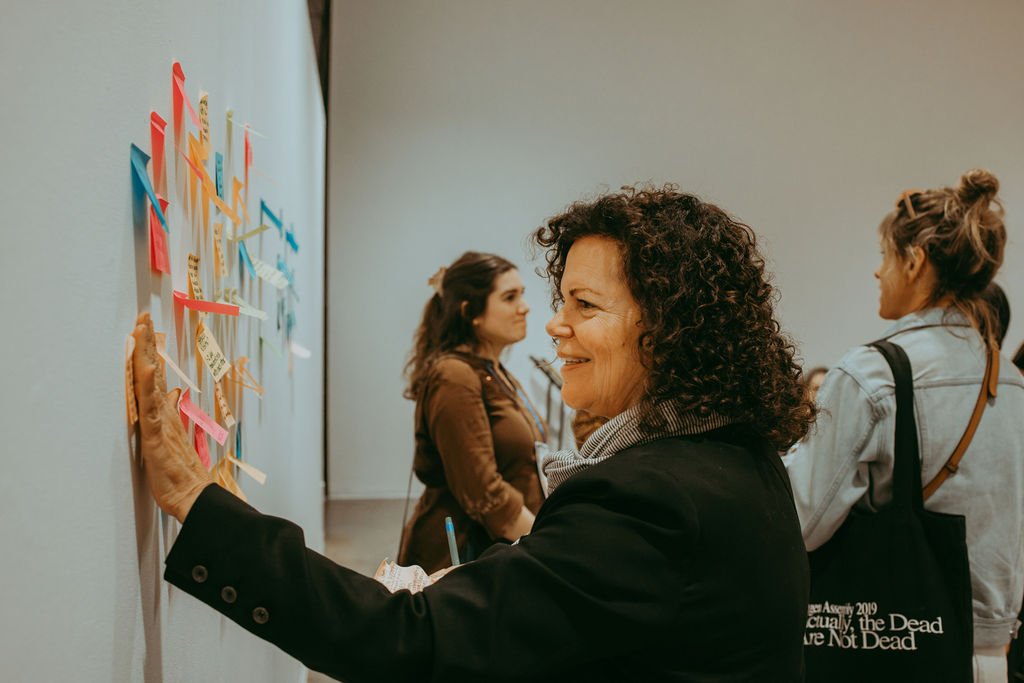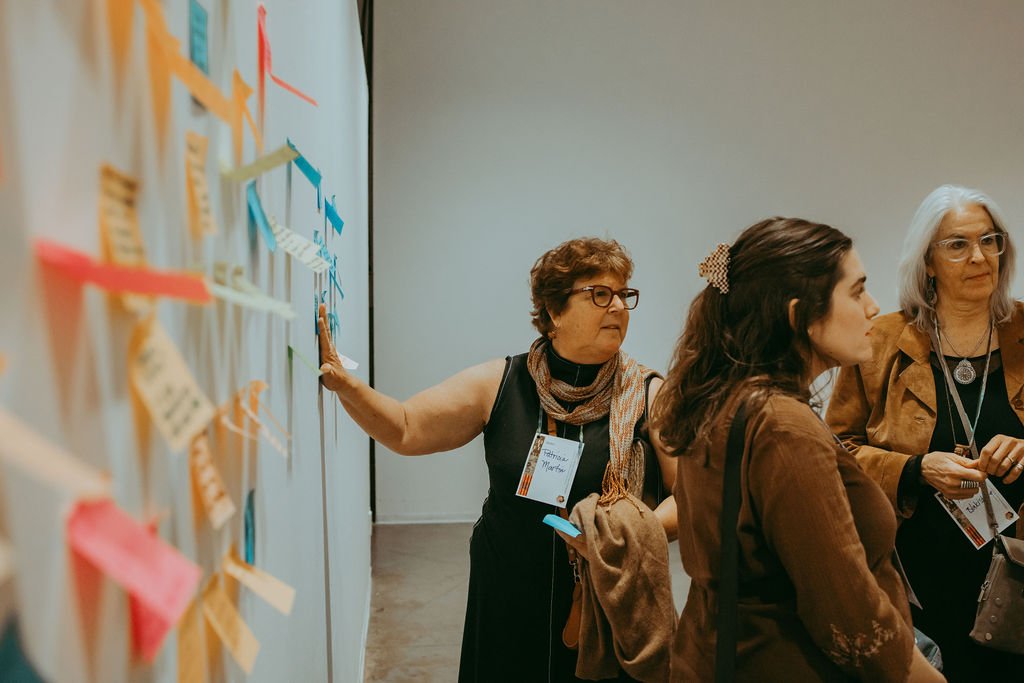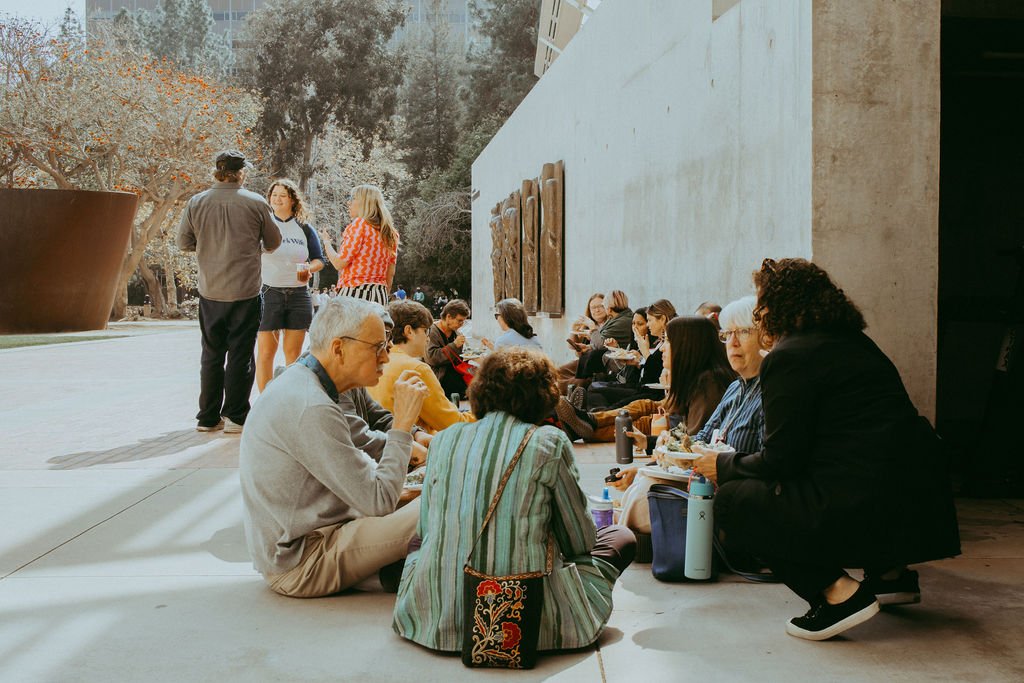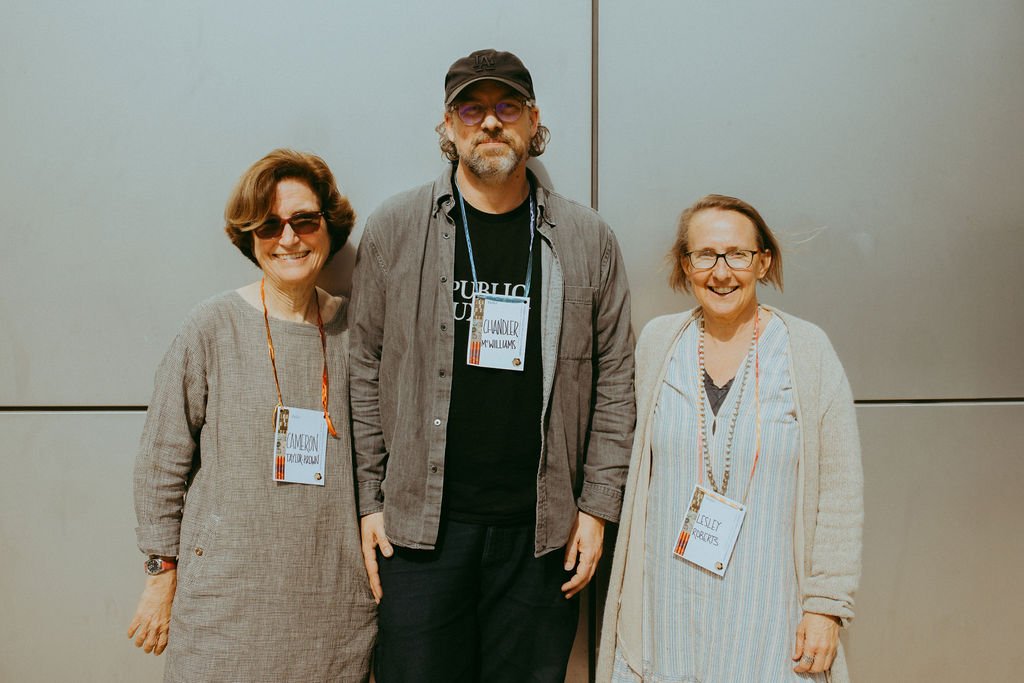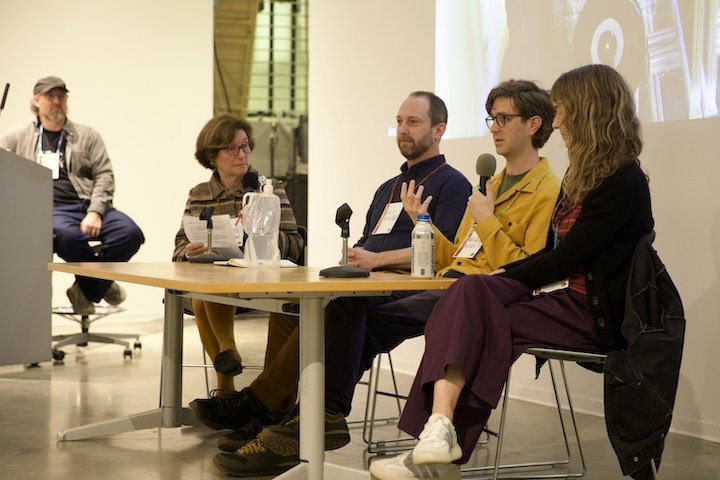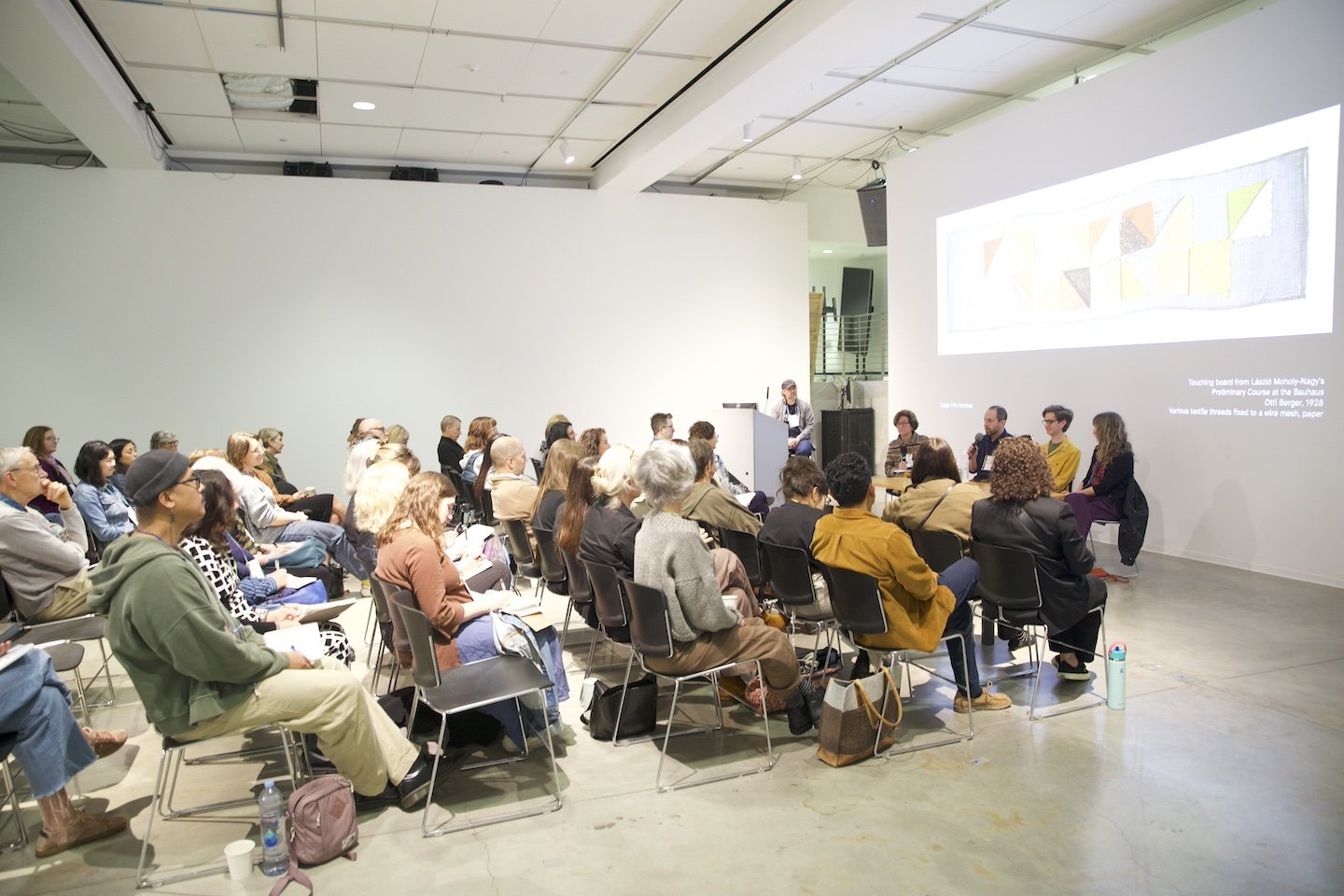
THINKING THROUGH TEXTILES
Friday, February 21, 2025
UCLA Broad Art Center
EDA: Experimental Digital Arts Space
8:30 a.m. - 1:00 p.m.
Gather with fellow academics, researchers, artists, designers, technologists, and architects to discuss the re-emergence of a textile-based education as part of a vibrant and future-facing pedagogy. This inaugural half-day conference will kickoff a regional focus on the role of textiles in a contemporary education. Hosted by UCLA's Department of Design Media Arts, Thinking Through Textiles: Future Pedagogies will explore the intersections of aesthetics, textile technique, cross-disciplinary studies, and new material insights, while introducing opportunities for collaborative engagement.
Thinking Through Textiles is a series of multidisciplinary talks that explore the transdisciplinary nature of textiles, fiber as shape-shifter, textiles as embodied meaning, and various related points of praxis.
Our interest in textiles comes at a time of profound alienation from their means of production. In the West, many have little idea where the fiber that makes their clothes comes from, much less the labor, energy, carbon, and water necessary to produce them. Parallels between computers and weaving are almost trite, but never more true. In both cases production is outsourced to a “cloud,” facilitating the exploitation of labor and the environment. By thinking through these parallel histories together, we gain a deeper understanding of the complexities of contemporary global capitalism, its history, and how Indigenous and craft practices provide modes of resistance and knowledges of ways forward into a world threatened by the environmental and human casualties of Anthropocene.
Learning to make and work with textiles shifts our minds from the abstraction of screens and networks, of thinking only with the eyes, and engages our thoughts on systems of production, material histories embedded in practices and tools, and thinking with and through the hands about the concrete reality in which we live.
WHAT’S NEXT
Our intent is to foster an ongoing conversation and collaboration. Future convenings may include
• Panels from international scholars
• Roundtables with artists, designers, and academics
• Exhibition / library showcasing traditional and innovative material / equipment
• Optional studio visits
VIDEOS OF THE PROCEEDINGS
Chandler McWilliams
Chandler McWilliams is an artist, writer, and teacher. His practice extends from his philosophical interests and political and personal realities: negotiating ethics, materiality, parenthood, epistemology, domestic life, perception, and anxiety in equal measure. His work complicates the relationship between language and meaning through poetry, anxiety, spatial awareness, scale, language, and materiality. He has exhibited internationally in non-profit and commercial galleries, and art institutions such as the The Museum of Contemporary Art Los Angeles, The Hammer Museum, Commonwealth and Council, LTD Los Angeles, Skibum MacArthur, Los Angeles Nomadic Division, Los Angeles Municipal Art Gallery, California Institute of the Arts, Machine Project, and the Frederick R. Weisman Museum of Art. McWilliams has a MA in Philosophy from The New School For Social Research in New York City and an MFA from the Program in Art at the California Institute of the Arts.
CONVENERS
Lesley Roberts
Lesley Roberts is a multi-disciplinary systems thinker, creative strategist, and cultural producer. She is interested in the drivers of cultural and behavioral change that will help us build the future we want to live in. Lesley is the founder of Material Encounters and the director of the So Cal chapter of Fibershed. She conceived and produced the conferences Material Dialogues, Material & Meaning, and groundwork, as well as the exhibits Sympoiesis making with and Tricksters & Transformation. She holds a BA in Art History from UCLA and a certificate from UCLA Anderson’s Executive Education program. She is currently enrolled in CSU Chico’s Regenerative Agriculture certificate program and Central Saint Martins, University of the Arts London, MA in Regenerative Design.
Cameron Taylor-Brown
Cameron Taylor-Brown was introduced to textiles by artist Ed Rossbach at the University of California, Berkeley, and studied textile design at the Philadelphia College of Textiles and Science, where she later taught woven design. Since 1985, she has lived in Los Angeles where she is active in arts and education. Her work is widely exhibited and has been featured in Fiber Art Now, American Craft, Handwoven and Shuttle, Spindle and Dyepot. In 2019, she curated the critically acclaimed exhibit Material Meaning: A Living Legacy of Anni Albers at the Craft in America Center. She is the founder of ARTSgarage, a textile resource center in Los Angeles, and teaches workshops at ARTSgarage, schools, guilds, museums and conferences throughout the United States. She is a past president of California Fibers, serves on the board of Textile Arts LA and is the current president of the UCLA Fowler Museum Textile Council.
